×

Collecting Hope, Spreading Smiles: How the Adani Foundation Is Steering The Noble Cause Of Blood Donation Across India
https://www.adanifoundation.org/en/stories-of-change/the-noble-cause-of-blood-donation-across-india~At the heart of the Adani Group lies a commitment to work for the people. This commitment to bring about a positive change in people’s lives is steered by the Adani Foundation

Skilling India’s Demographic Dividend: Adani Saksham has trained 1.5 lakh youth in 8 years
https://www.adanifoundation.org/en/stories-of-change/skilling-indias-demographic-dividend-adani-saksham-has-trained-1point5-lakh-youth-in-8-years~What if I told you that the students trained under Adani Skill Development Centres (ASDC) are generating over INR 1,300 crores annually

Project Utthan giving students from rural hinterland wings to fly
https://www.adanifoundation.org/stories-of-change/project-utthan-giving-students-from-rural-hinterland-wing-to-fly~Chandan Jain is a resident of Salpura village in Kawai, Rajasthan. He has disability in one hand. His father suffers from paralysis, leaving a severe financial constraint on the family.

Mother and Child Care Unit Opens in Dahanu
The Adani Foundation constructed a Mother and Child Care Unit (MCCU) in Dahanu, Maharashtra – which is the first and only such facility that is catering to the entire Palghar district in Maharashtra. In its absence, expecting mothers had to travel as far as Vapi to receive specialized care, which sometimes

Lovely Gets a New Lease of Life
Lovely is a class 5 student who is struggling with dysfunctional limbs (right leg and right hand) since birth. She got a surprise when Sh. Gautam Adani, Chairman of Adani Group, noticed her situation through a social media post. He promptly expressed his sympathy and announced full support to her

AVMA Wins Unesco Certification
Adani Vidya Mandir Ahmedabad has proudly secured the UNESCO Model AspNet School certification, making it the first school in Gujarat to receive this prestigious recognition. Ms. Shilin R. Adani, Hon. Trustee of Adani Foundation, graciously accepted the Membership Certificate at Adani Vidya Mandir, Ahmedabad, from Mr. Parvez Malik, ASPnet National
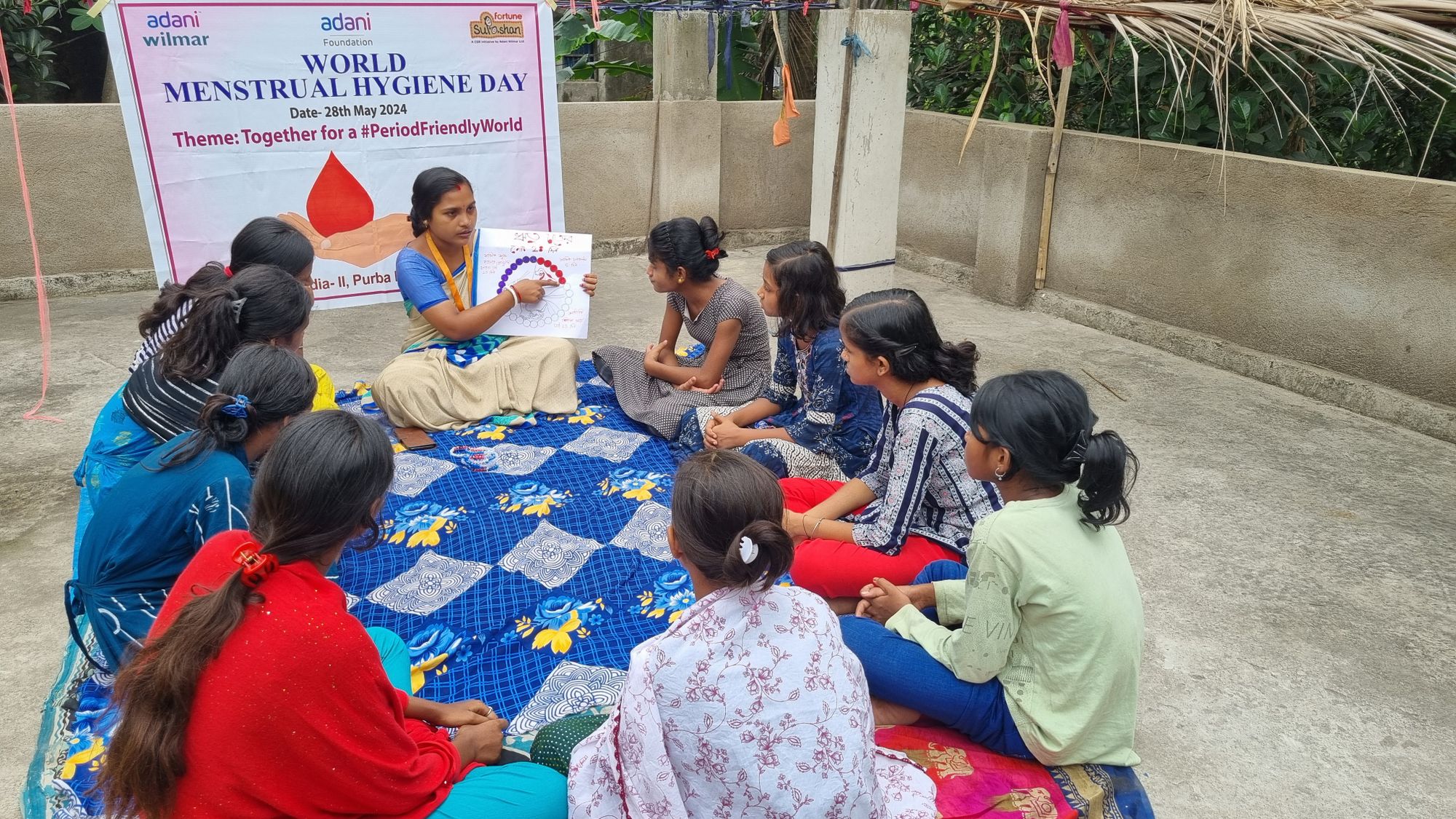
Busting Myths on Menstrual Hygiene Day
To mark Menstrual Hygiene Day on May 28, our teams across 11 sites in 10 states conducted various activities to spread awareness about periods and taking care of one’s reproductive health among young girls and women.
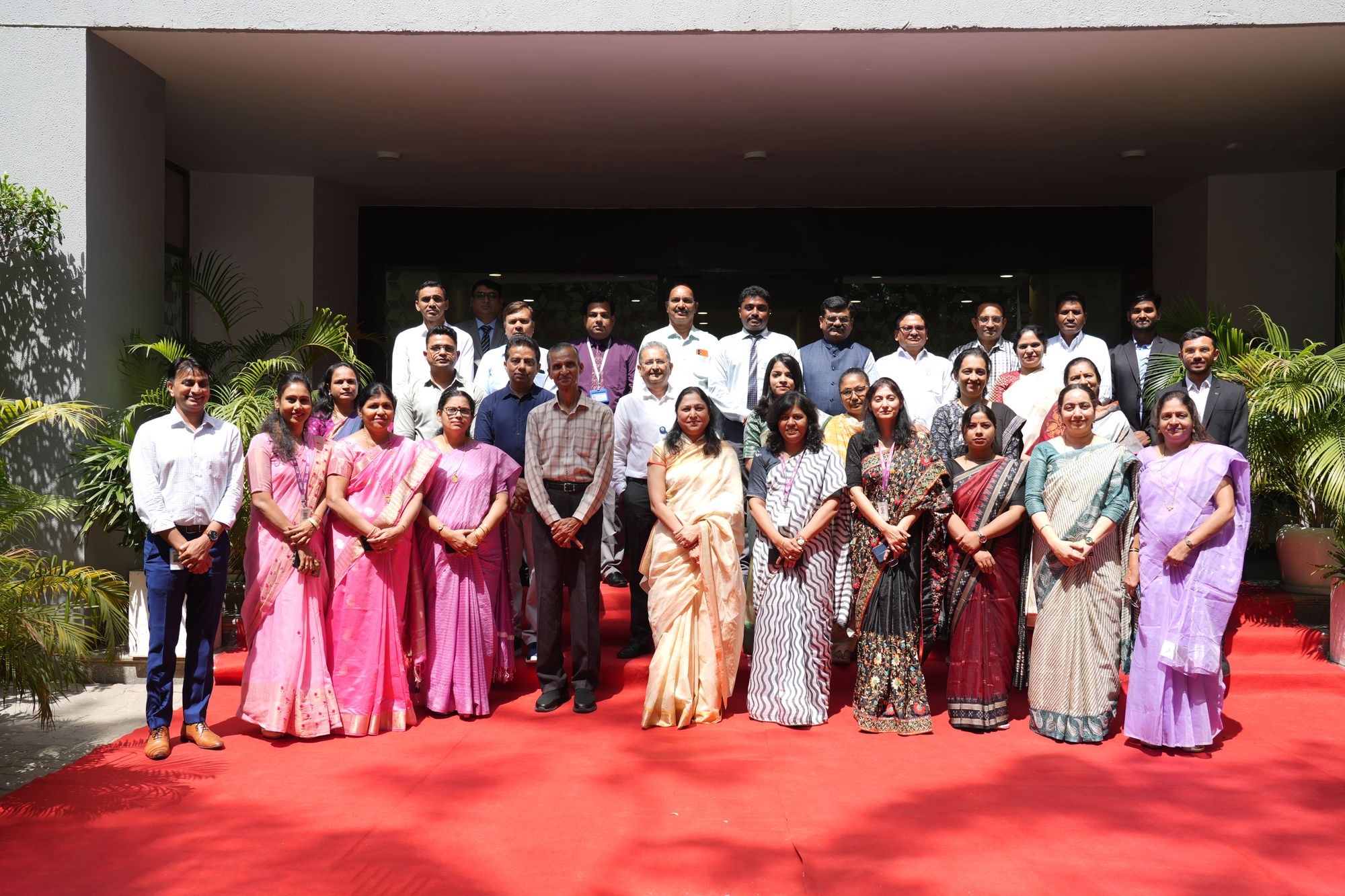
A First-of-its-kind Principals’ Meet
The Adani Foundation organized a principals' meet for all Adani schools. While they highlighted the achievements of the last academic year, they also presented their growth plans for the coming academic year.
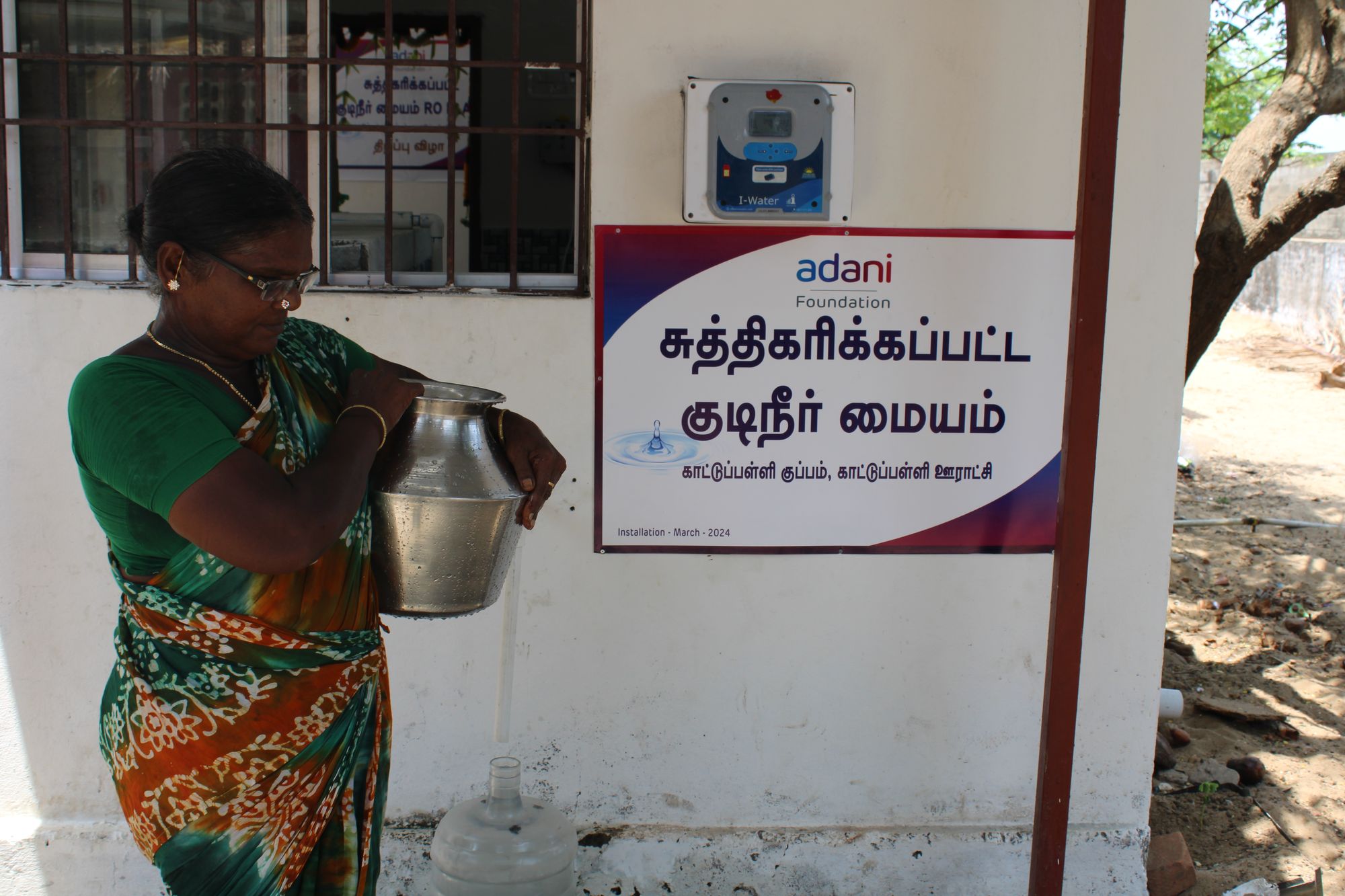
Drinking Water for Fisherfolk Families
The Adani Foundation recently installed a Reverse Osmosis plant of 1,000 LPH (liter per hour) capacity in Kattupalli Kuppam village of Tiruvallur district in Tamil Nadu to benefit 150 fisherfolk families.
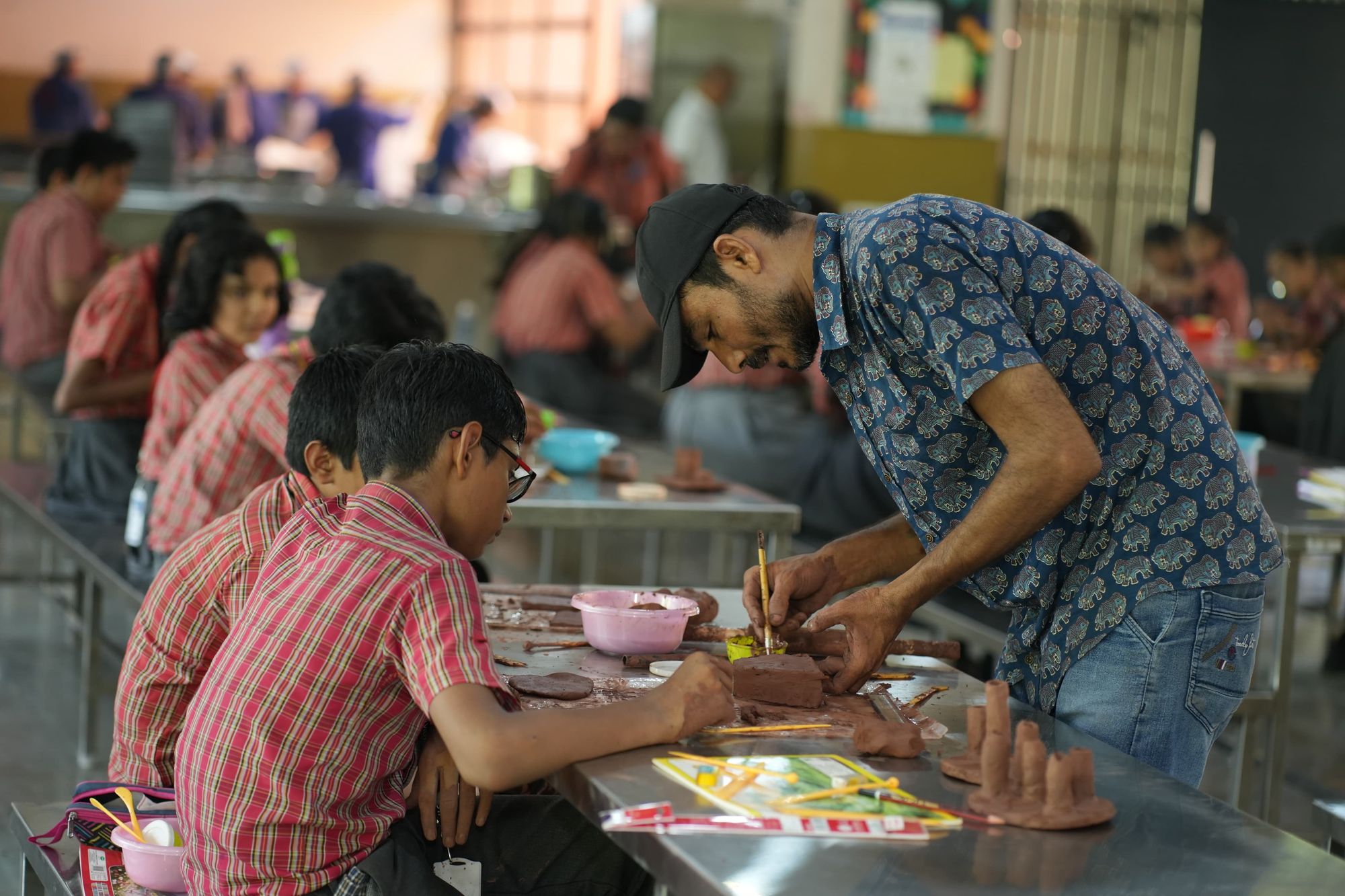
Sathwaro Curates Craft Workshop in AVMA
As part of project Sathwaro, we organized a crafts workshop for students of Std. 6-9 of Adani Vidya Mandir, Ahmedabad, wherein they learnt the basics of embroidery, crochet, terracotta pottery and Madhubani painting.

Raising Awareness on Parkinson's
A play to raise awareness on Parkinson’s disease titled ‘Still Dancing’ by Movement Mantra & Third Half Theatre was supported by the Adani Foundation.
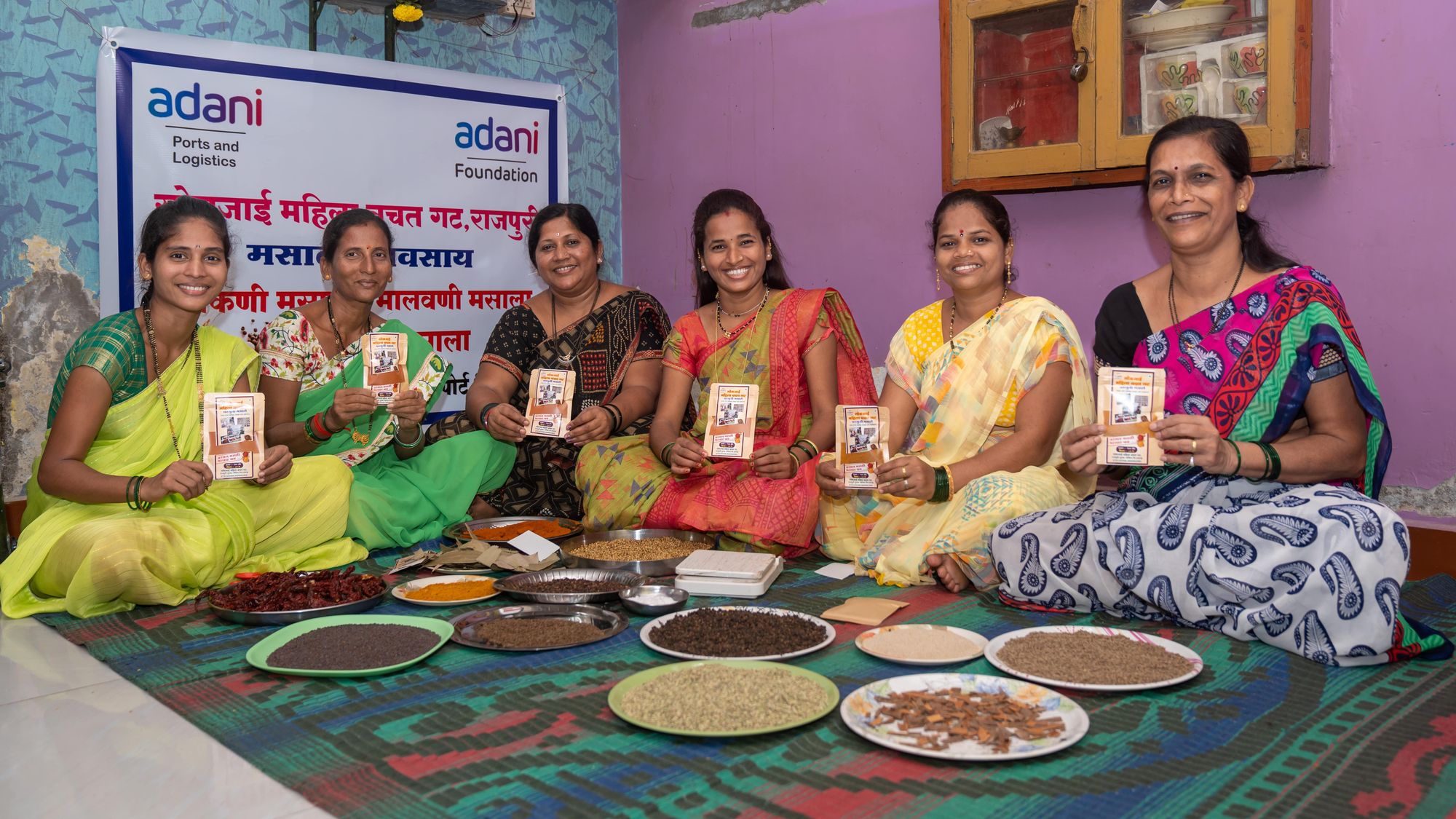
Women: Not building blocks but builders of India
https://www.adanifoundation.org/stories-of-change/women-not-building-blocks-but-builders-of-india~In Tamnar, Chhattisgarh, seven tribal women aged 20-25 took up a free six-month training program in Fire Safety and Disaster Management in Vadodara.
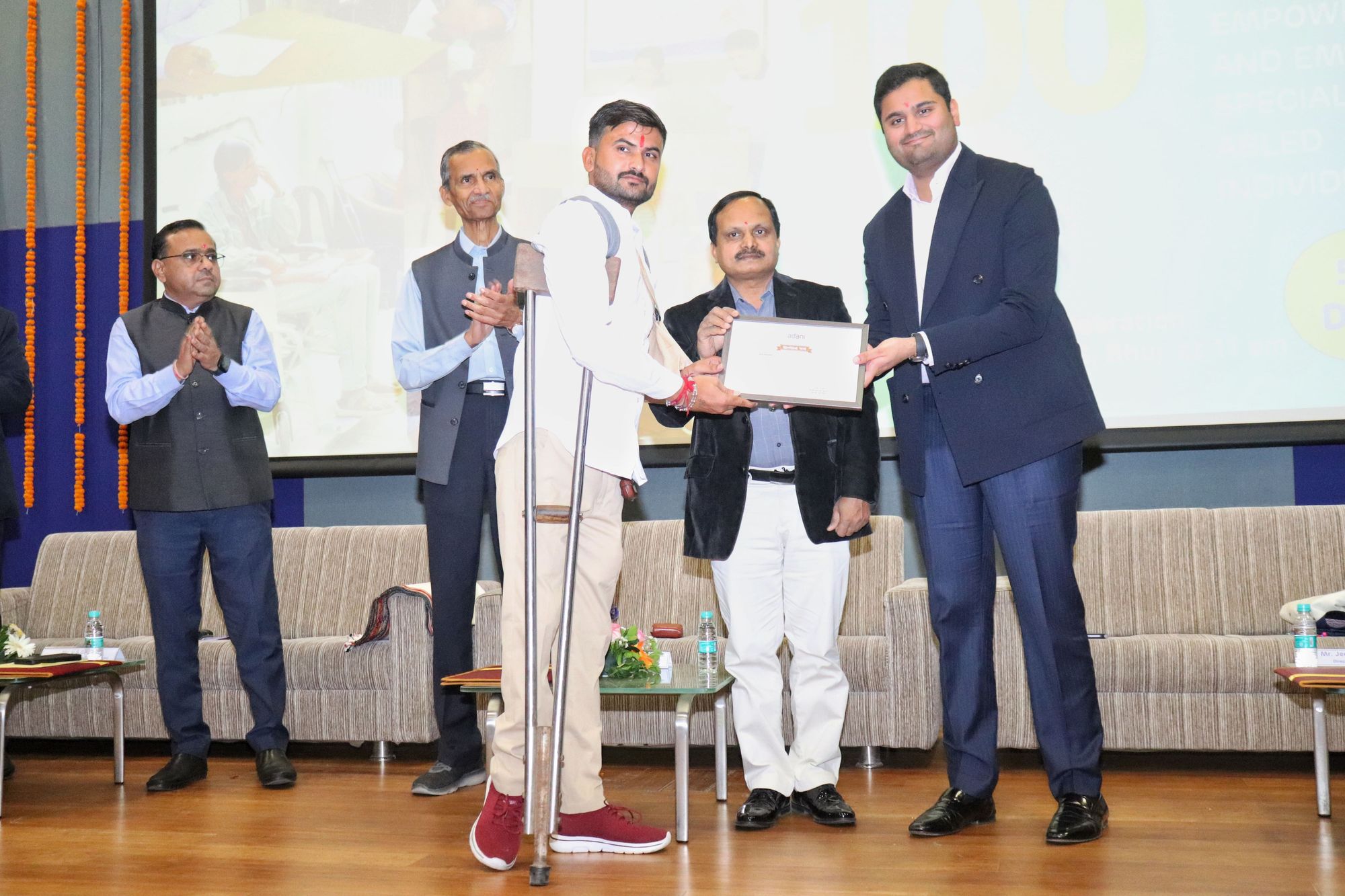
Celebrating ‘this ability’: Unlocking Potential to Achieve Self-Reliance
https://www.adanifoundation.org/stories-of-change/celebrating-this-ability-unlocking-potential-to-achieve-self-reliance~To commemorate the International Day of People with Disabilities and enable them to become financially independent, the Adani Foundation organized a large-scale employment fair
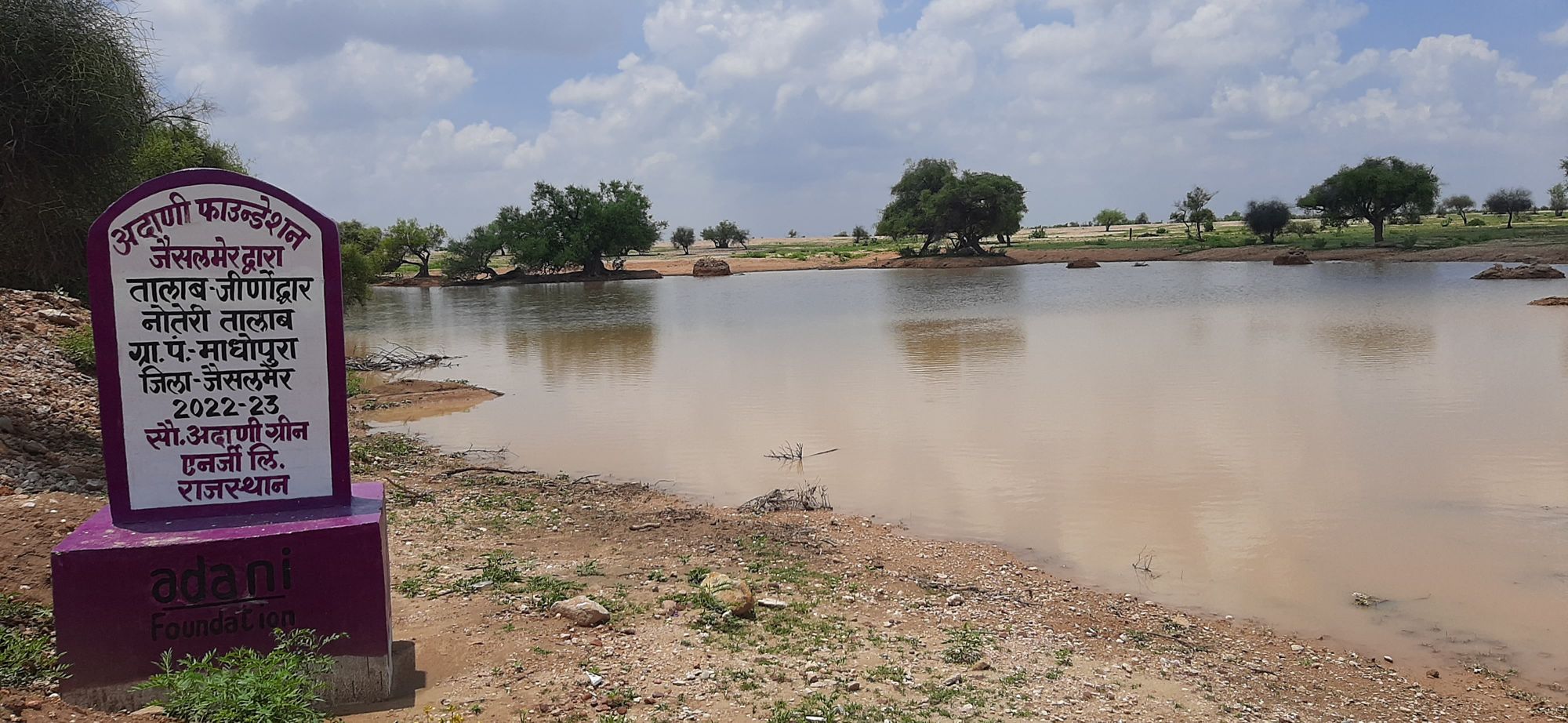
World Water Day: Community-Based Management for Sustenance, Peace & Prosperity
https://www.adanifoundation.org/stories-of-change/world-water-day-2024-community-based-water-management-for-sustenance-peace--prosperity~Water, our life source, is precious to sustain all living beings on Earth. It covers approximately 71% of our planet's surface.

600+ students of AVMB to plant 25k saplings
Adani Vidya Mandir, Bhadreshwar (AVMB), celebrated its 12th annual day on March 5, 2024. With UN’s Sustainable Development Goals as their theme for this year, the 600+ students of the school (largely belonging to fisherfolk communities and most of them first-generation learners) highlighted the importance of living in harmony
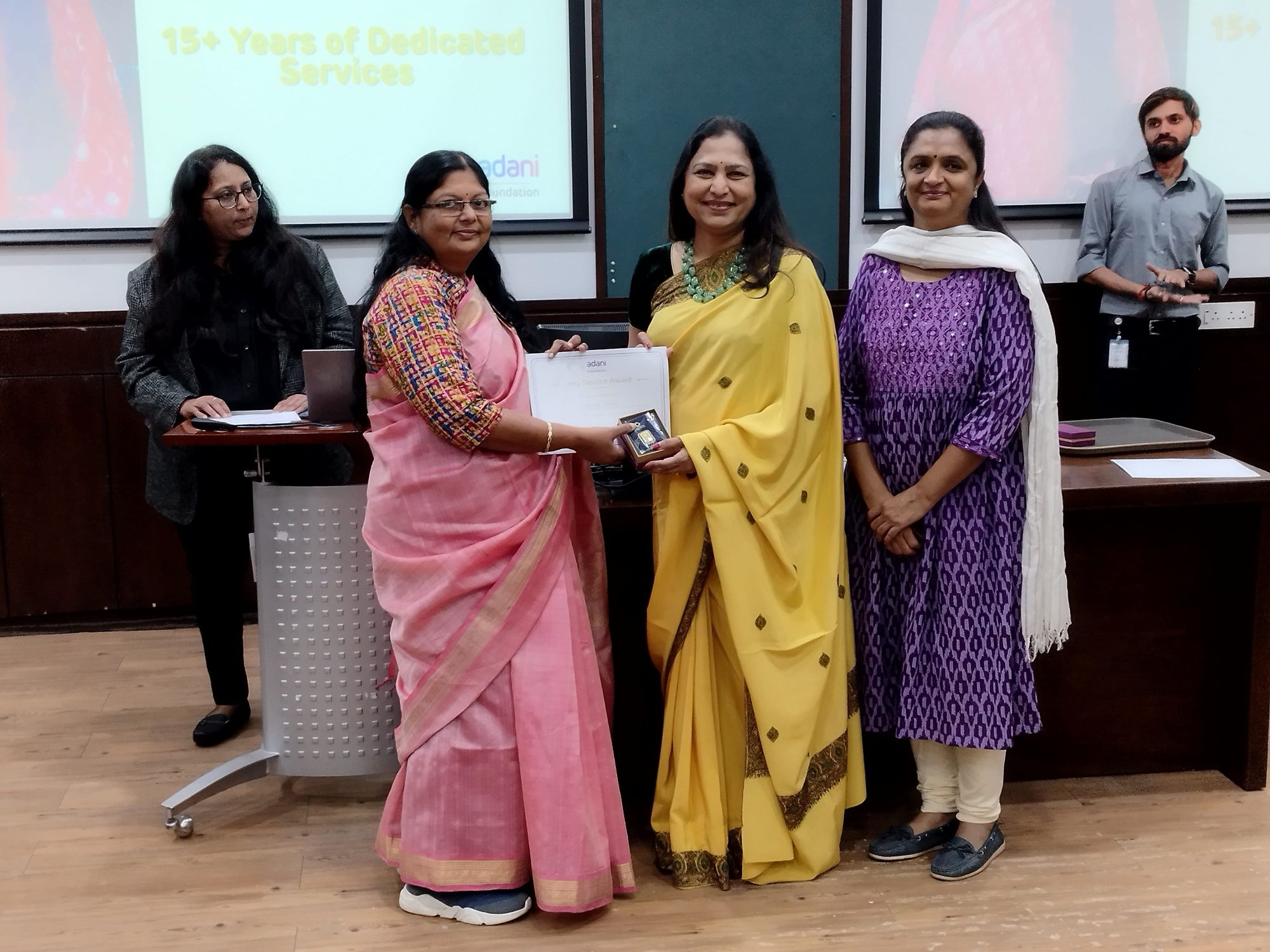
Chairperson Felicitates Long Service Awardees
A Long Service Award is a way of recognizing and rewarding employees’ loyalty. In the case of Adani Foundation, it is our teams at the grassroots level who drive sustainable development with and for the community. The Foundation prides itself in adopting the bottom-up approach, relying heavily on community engagement
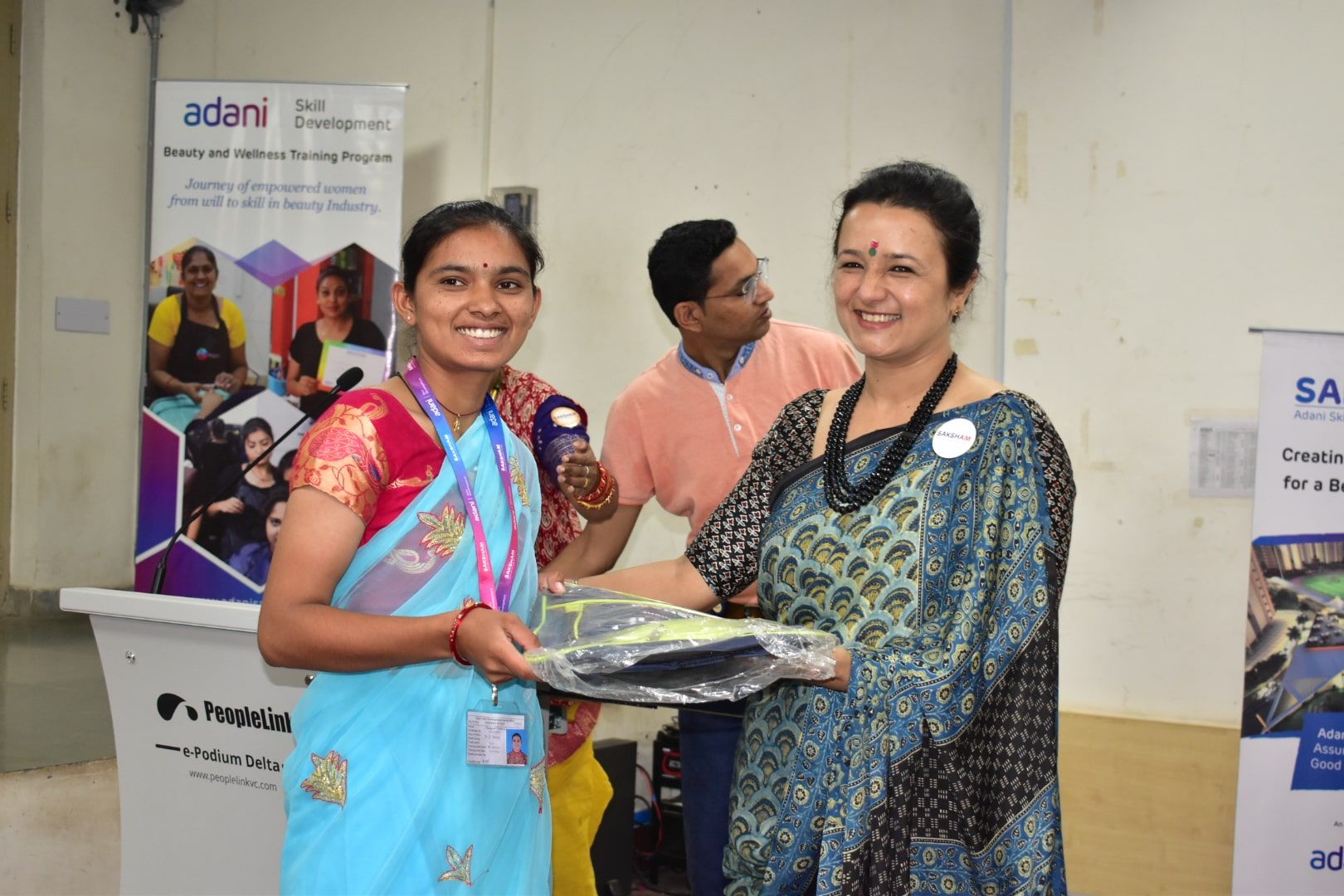
Celebrating Self-Reliance on Int’l Women’s Day
This International Women's Day (8thMarch, 2024), the Adani Skill Development Centre (ASDC) aligned itself with the United Nation's theme, “Invest in Women: Accelerate Progress". To celebrate the occasion, 2,024 women were enrolled for skill-development courses across an array of job sectors ranging from retail, apparels, healthcare, hospitality and IT.
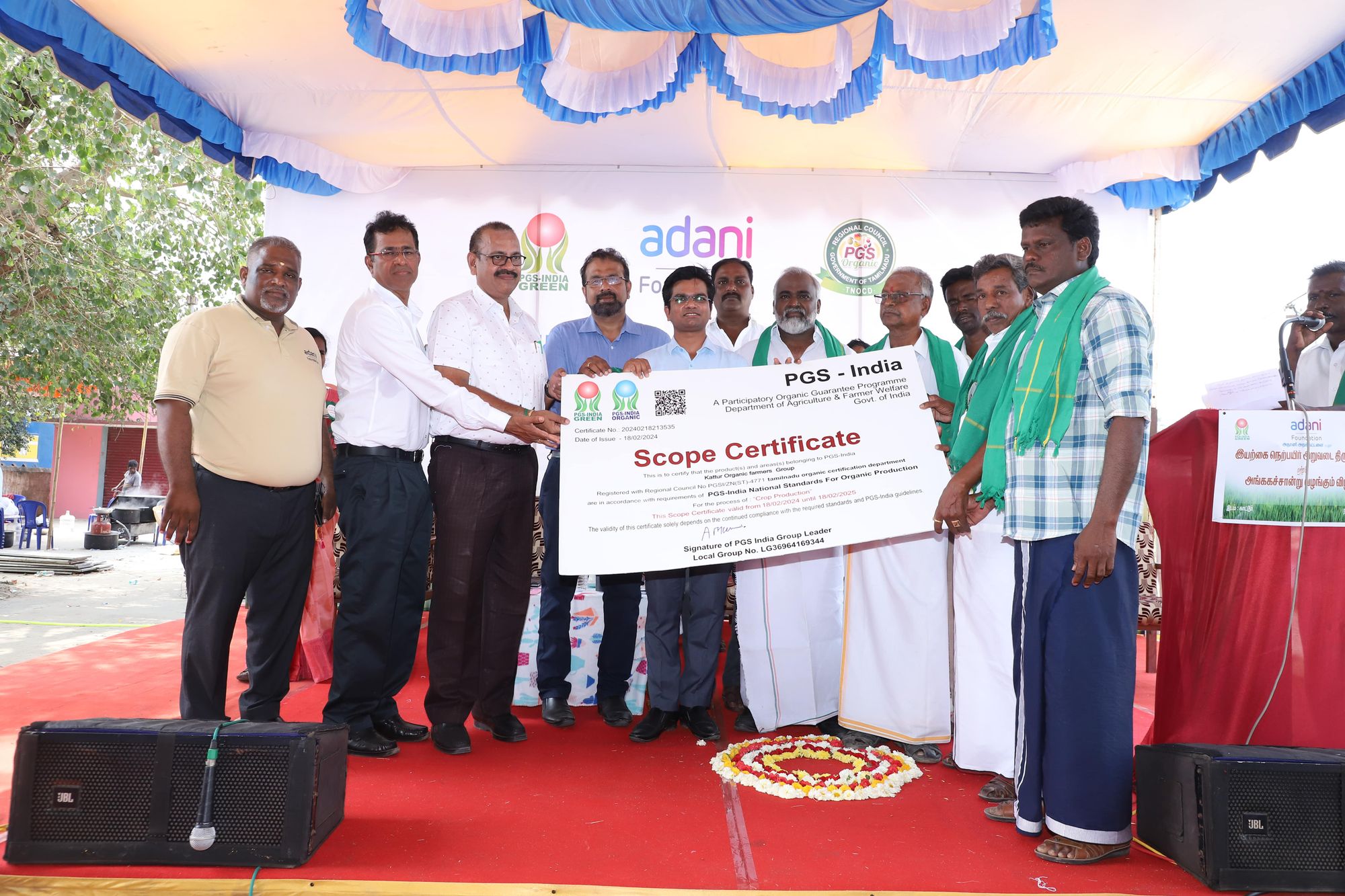
AF joins hands with TN Govt.
The Adani Foundation has joined hands with the Tamil Nadu government to promote the cultivation of paddy in Kattupalli under organic certification. For this, scope certificates were given to 100 farmers.

Phase 3 of STEM Leadership Programme Concludes
In partnership with the National Institute of Education, Singapore, the Adani Foundation is developing a STEM curriculum framework tailored to the Indian context. Recently, the third phase of the programme was held at Adani Vidya Mandir, Ahmedabad (AVMA) to conduct classroom demonstrations.

AF Shines at Give Conclave, Mumbai
The Adani Foundation team participated in 'The Give Conclave', 2024, at Jio World Centre in Mumbai, to showcase its initiatives and interact with various stakeholders in the social development sector.
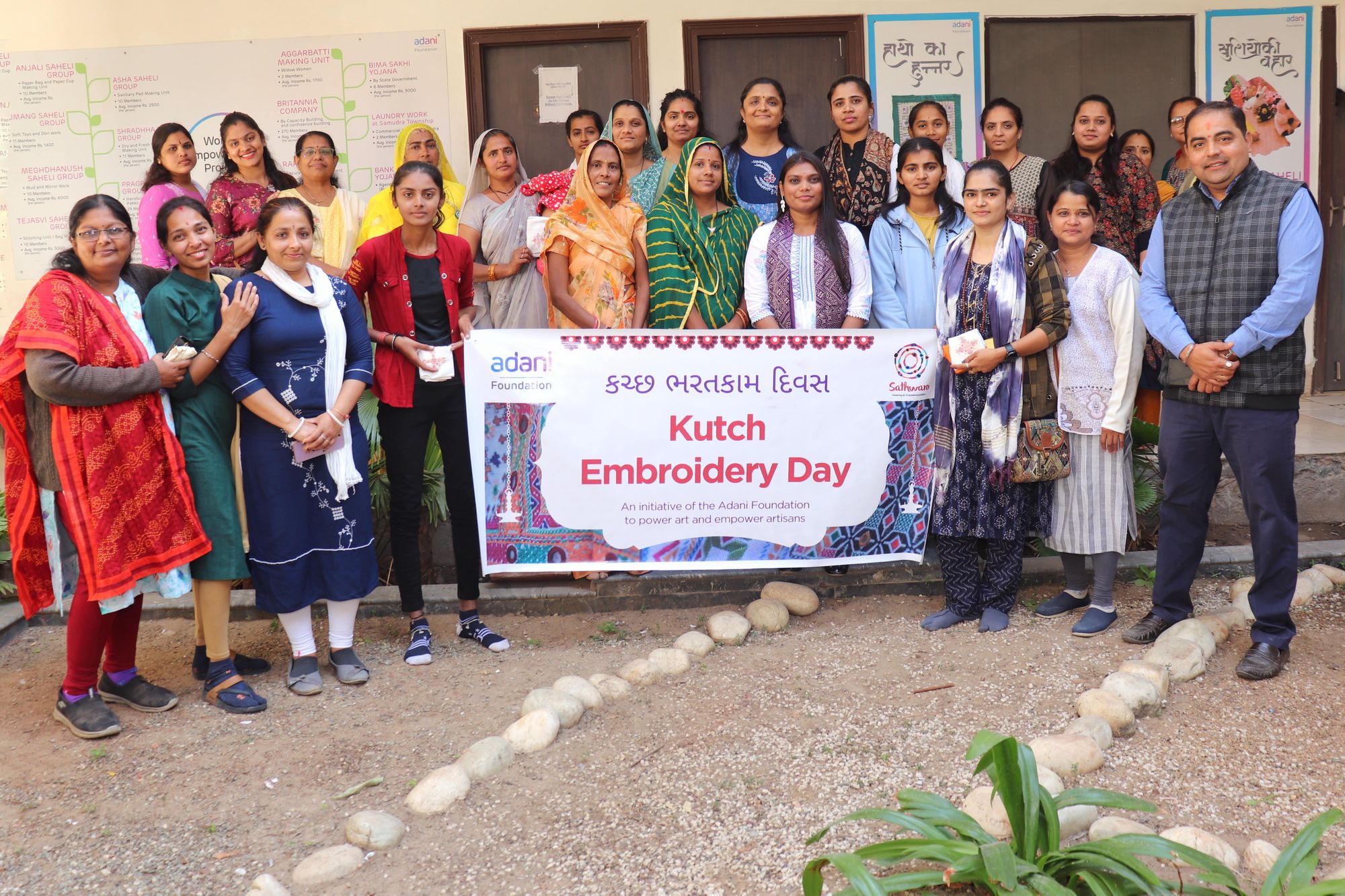
Sathwaro Celebrates Kutch Embroidery Day
The Adani Foundation celebrated the Kutch Embroidery Day in Mundra, Gujarat, by organizing a three-day training workshop of soof embroidery under Sathwaro, a project to preserve Indian arts by empowering artisans.
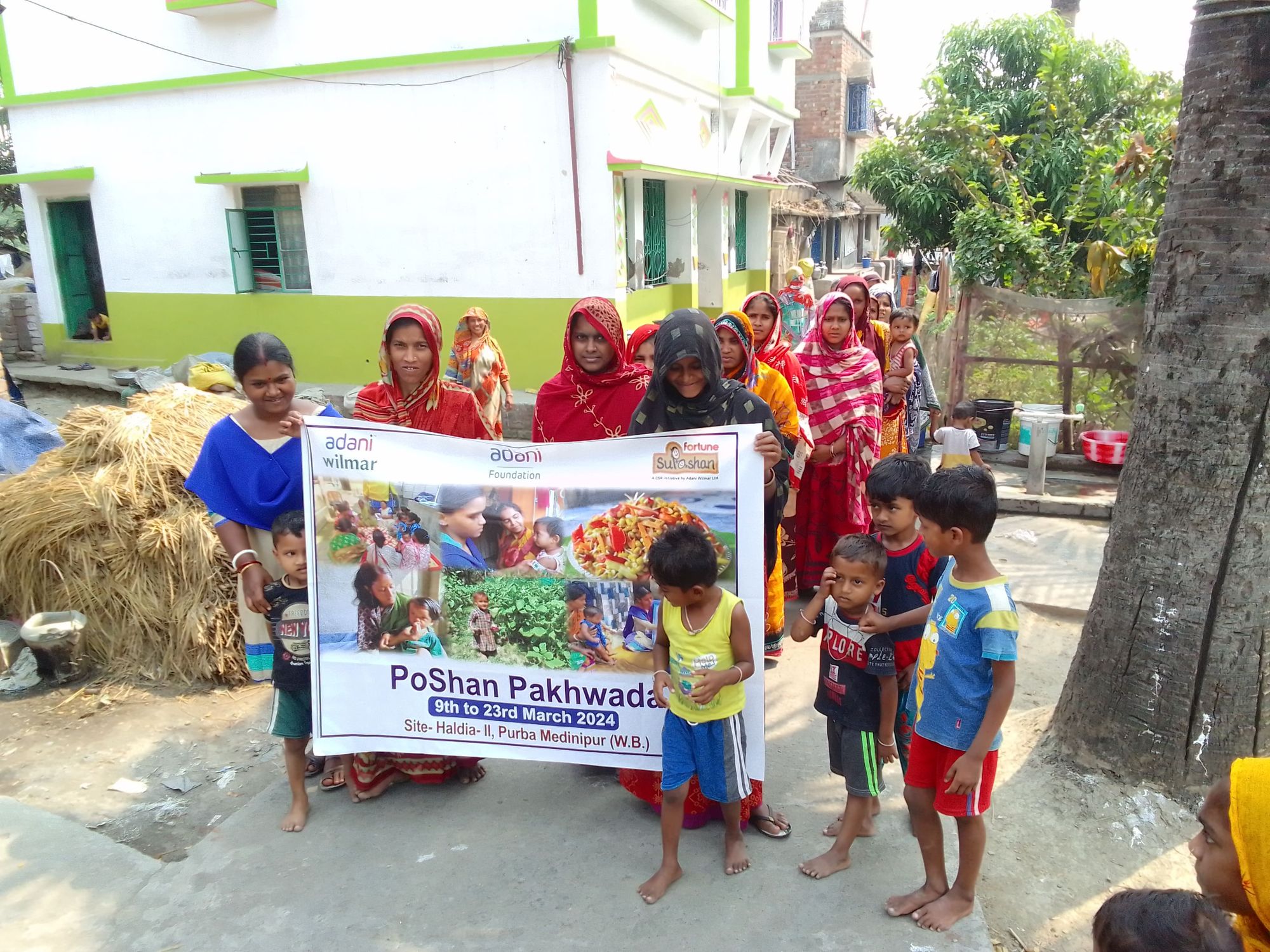
SuPoshan Sanginis Commemorate Poshan Pakhwada
As part of the government's Poshan Pakhwada, our SuPoshan Sanginis conducted various interactive activities to educate people, especially pregnant women, about quality nutrition and healthy eating habits.
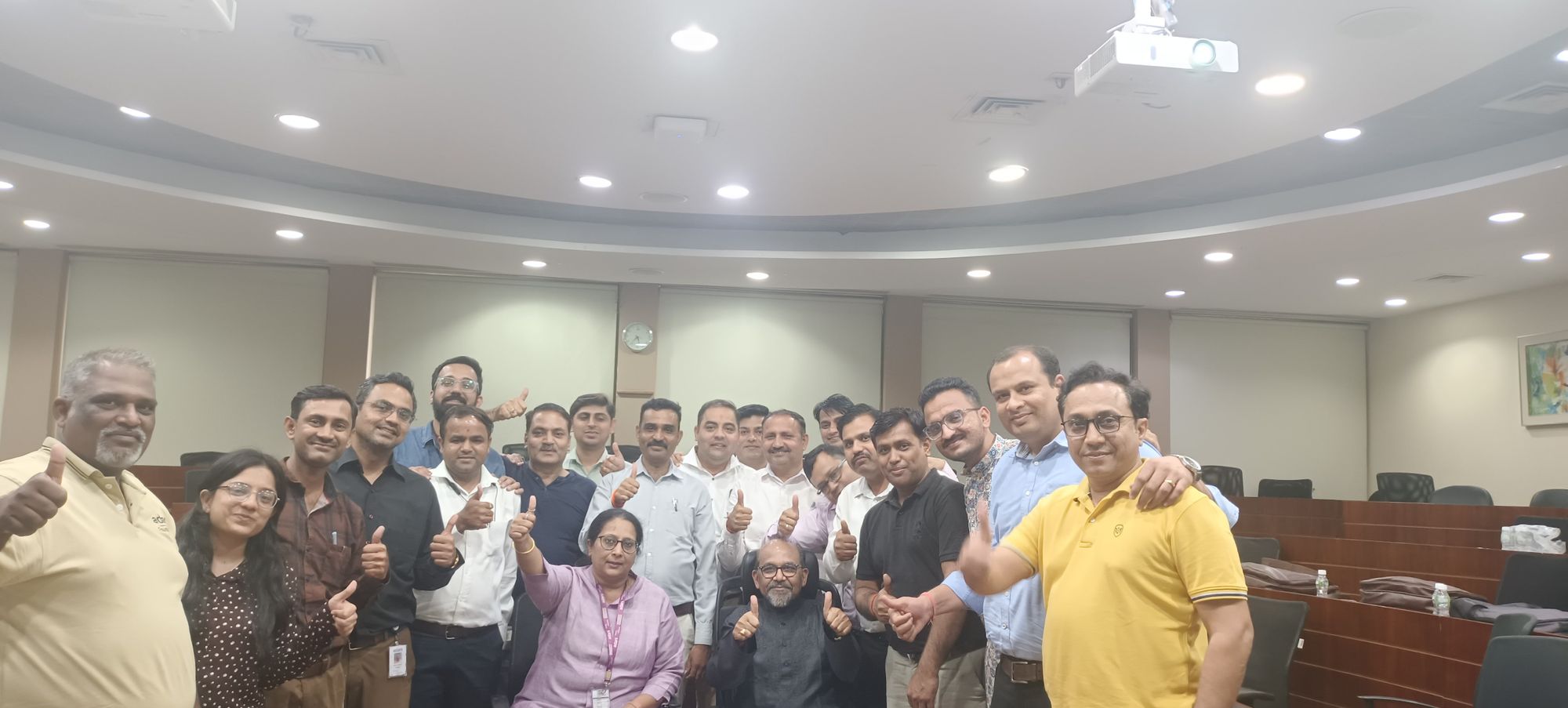
AF Conducts Internal Mentoring Programme
As many as 46 employees of Adani Foundation attended the first phase of Arohan – an in-house training programme that focuses on capacity building of employees to help them grow professionally.
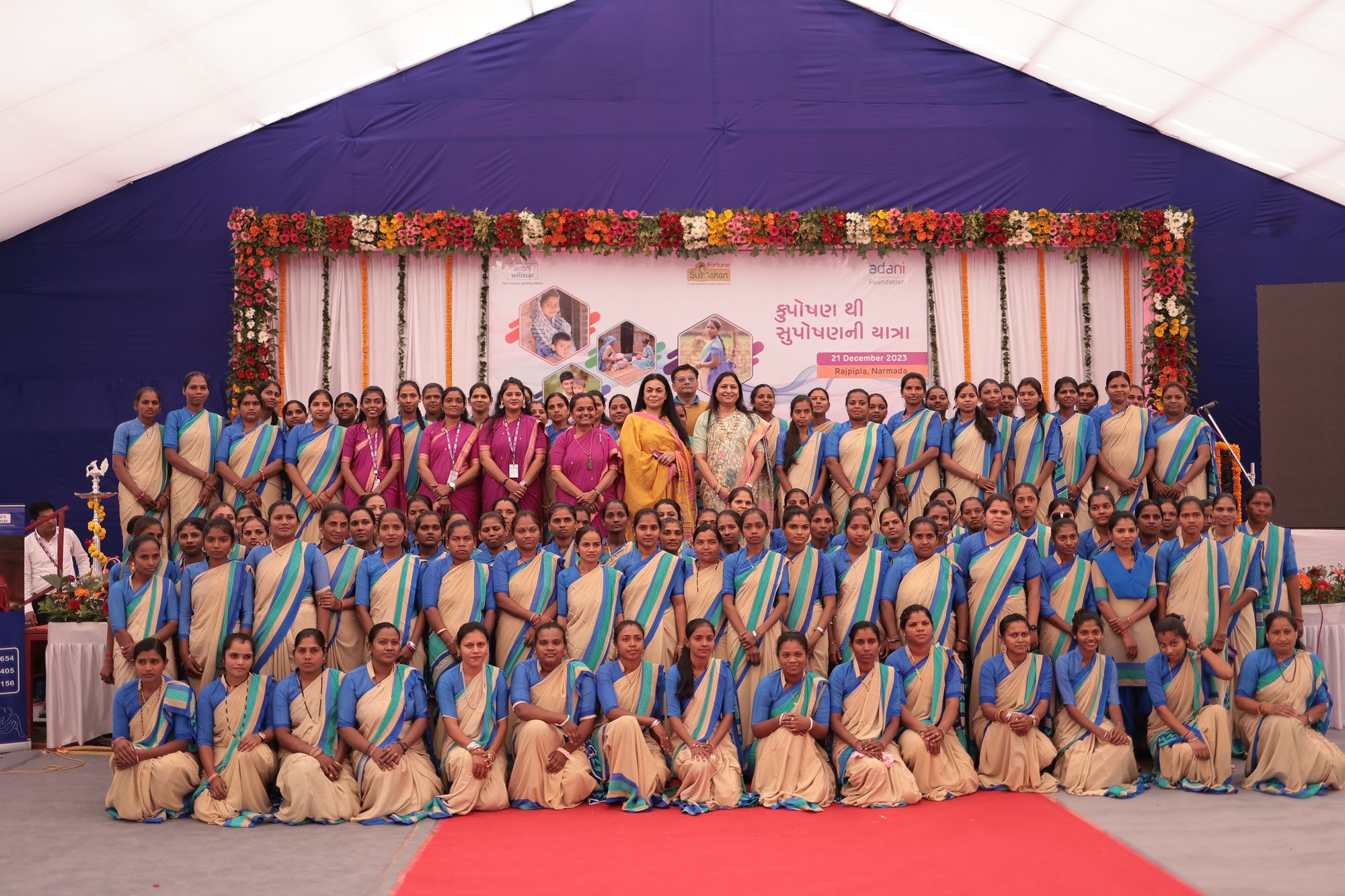
Embracing Radiance: The Heartfelt Odyssey of SuPoshan Sanginis in Narmada
https://www.adanifoundation.org/stories-of-change/embracing-radiance-the-heartfelt-odyssey-of-suposhan-sanginis-in-narmada~In the wee hours of the morning, my journey began, winding through the roads that led to Rajpipla in Narmada (Gujarat) where I was about to witness first hand

IT on Wheels: Going the Distance to Ensure Computer Literacy in Rural Areas
https://www.adanifoundation.org/stories-of-change/it-on-wheels-going-the-distance-to-ensure-computer-literacy-in-rural-areas~I am astonished by the fact that we have witnessed more progress in the last 500 years than in the previous 5000 years
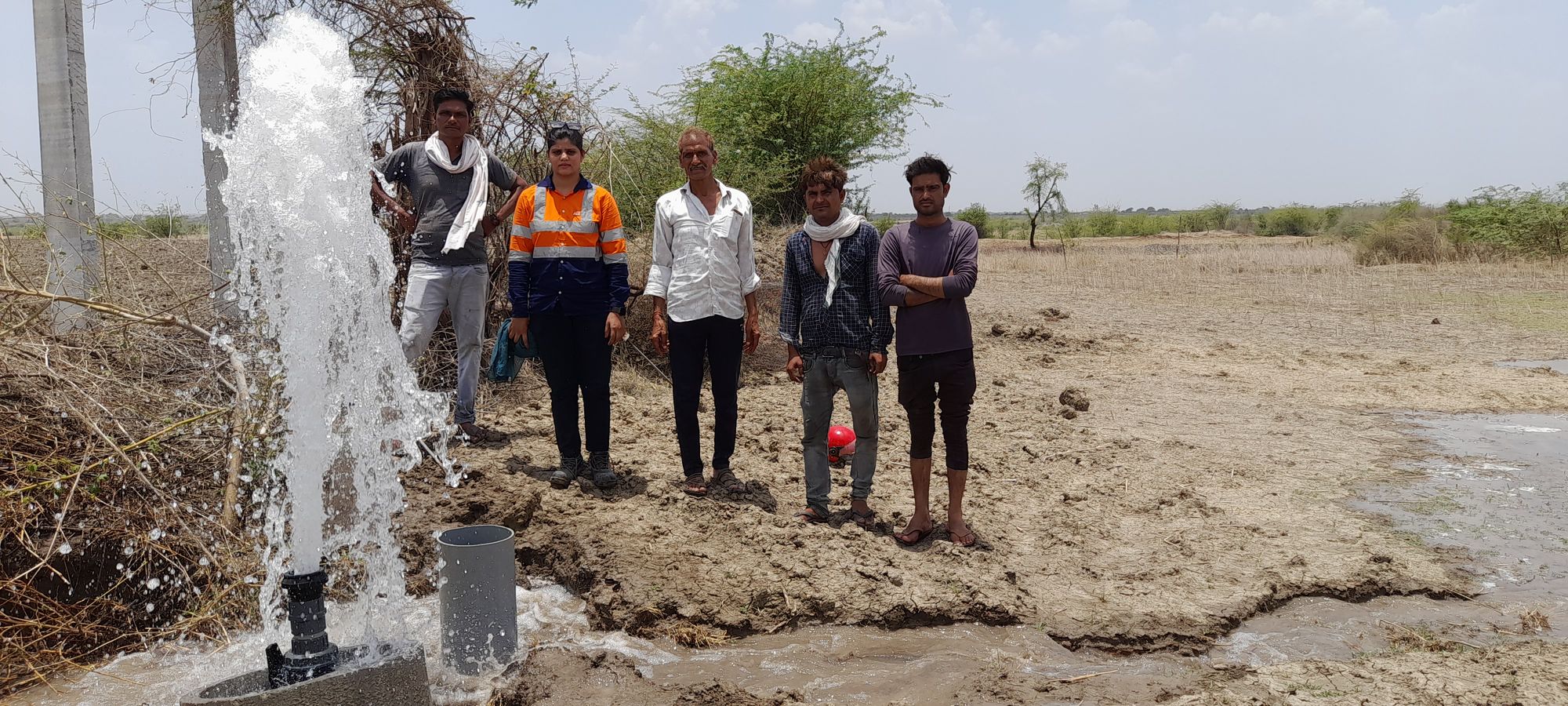
This Village-level Irrigation System in Rajasthan is Helping 500 Farmers
https://www.adanifoundation.org/stories-of-change/this-village-level-irrigation-system-in-rajasthan-is-helping-500-farmers~Gopal Meena lives with six members of his family in Kankra Dungar village in Bundi district of Rajasthan.
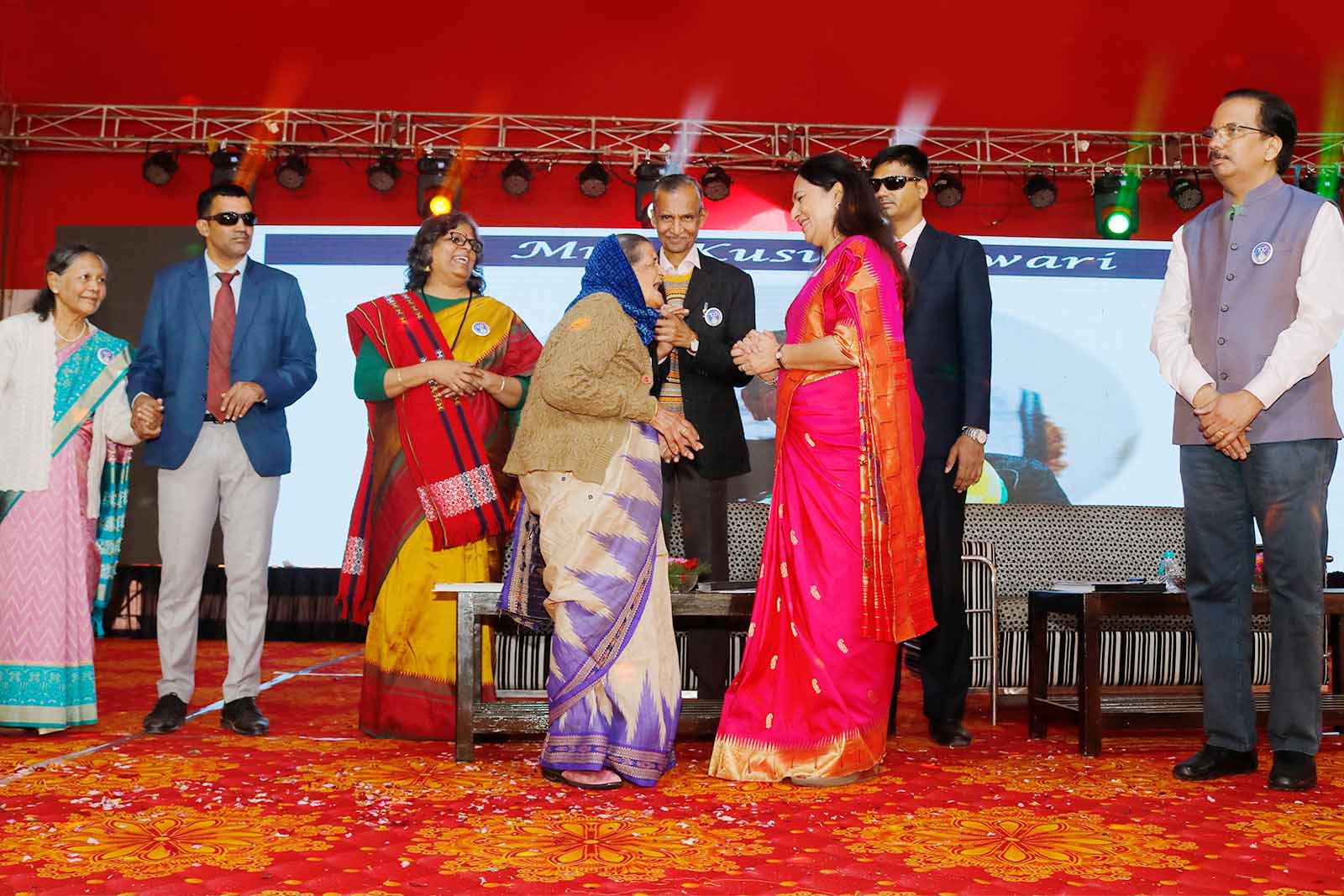
ACC Higher Secondary School hits a century!
The ACC Higher Secondary School, Kymore, Madhya Pradesh, commemorated its 100thanniversary on December 29, 2023, marking a century of imparting quality education and shaping the lives of over 17,000 individuals. Established in 1923 by C.P. Portland Cement Limited with just two classrooms, the school has evolved over the
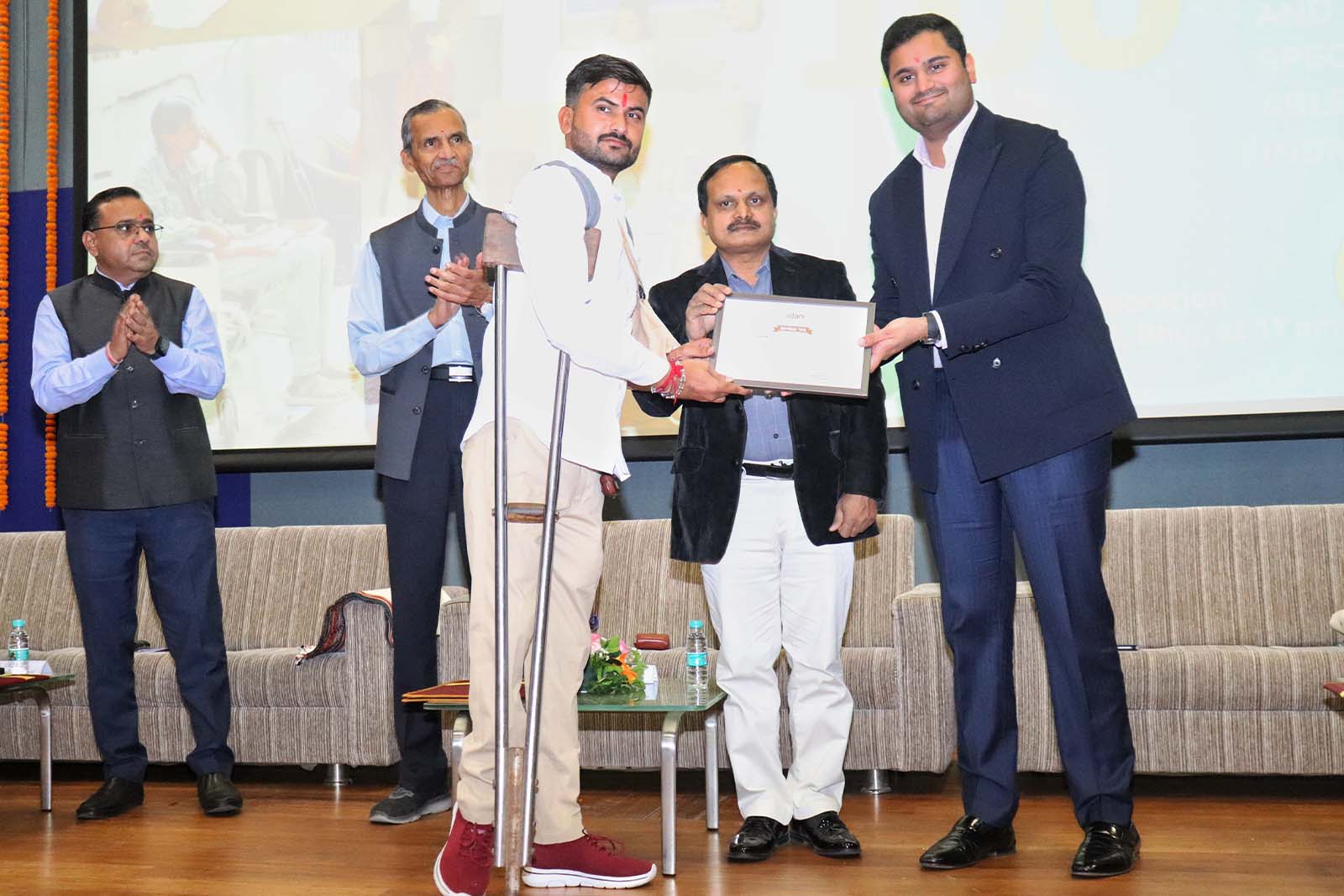
111 persons with disabilities embrace livelihood opportunities
The Adani Foundation organized a large-scale employment fair to commemorate International Day of People with Disabilities which is celebrated annually on December 3. The results were heart-warming. 111 people with disabilities secured jobs in the Adani Group and 20 other companies located in and around Mundra, Gujarat. These efforts culminated
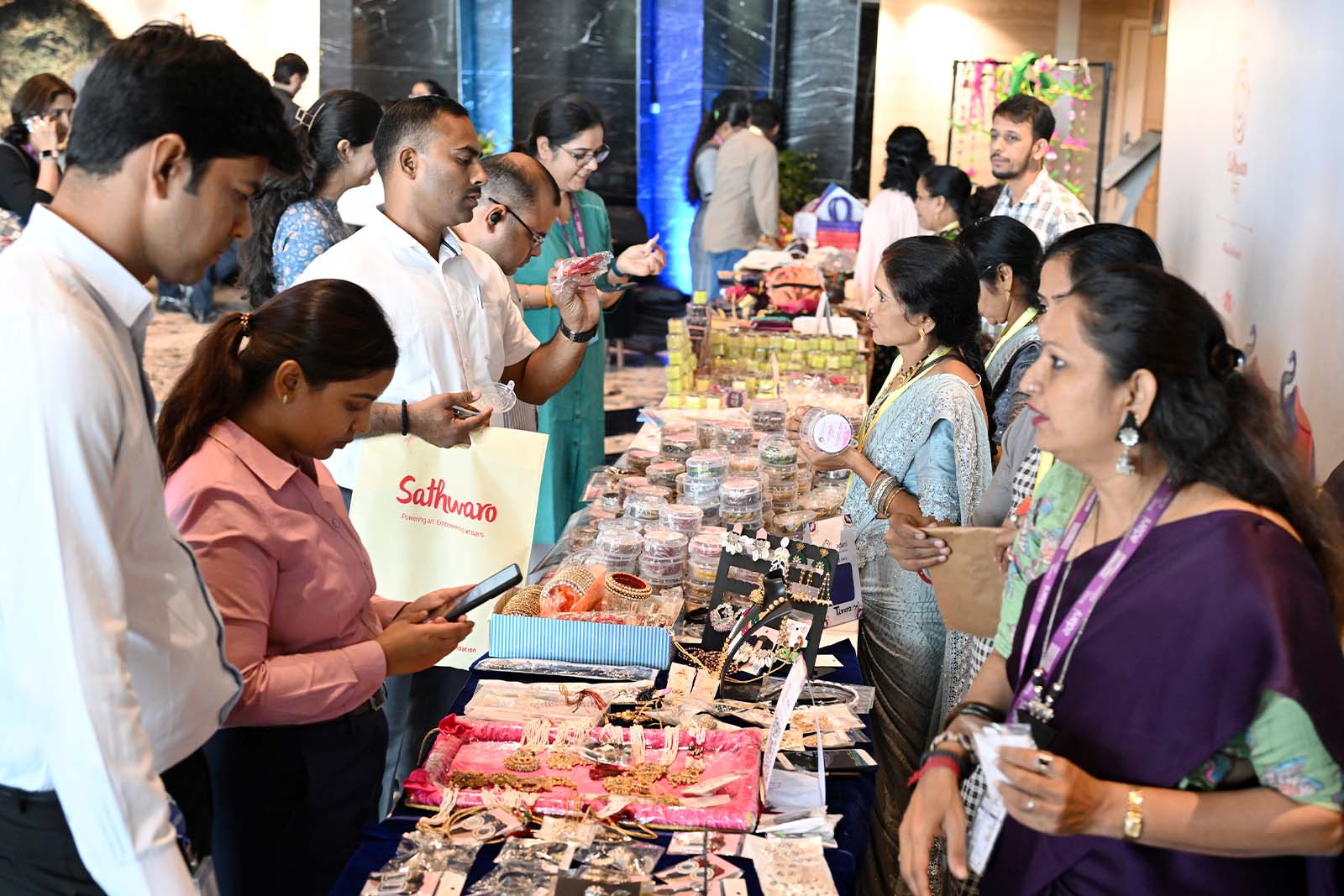
Adanians witness the Inaugural edition of Sathwaro Mela
The Adani Foundation brought handcrafted products from different parts of India to the headquarters of Adani Group in Ahmedabad as part of Sathwaro – a project that aims to power art by empowering artisans. In this inaugural edition of Sathwaro Mela, talented artisans and self-help groups came together under one roof

Cyclone Michaung Relief Efforts
In the aftermath of cyclone Michaung, the Adani Foundation team provided food to 10,750+ residents and addressed healthcare concerns in 10 Gram Panchayats of Tiruvallur District.

AVMA: India School Merit Awards
Adani Vidya Mandir, Ahmedabad clinched the coveted rank 1 in holistic education at the prestigious India School Merit Awards 2023 held in Bangalore.
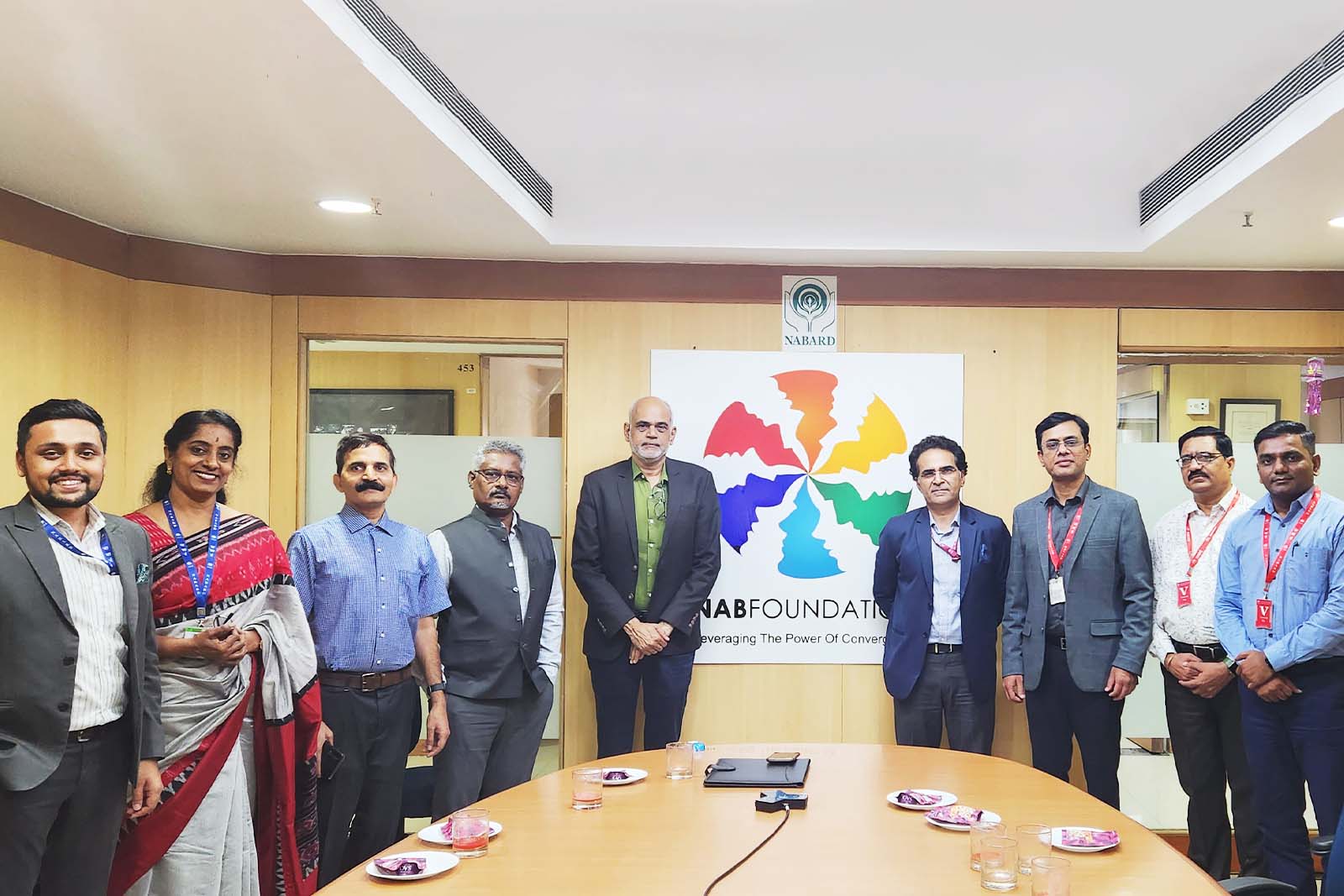
MOU with NABFoundation
The Adani Foundation singed an MOU with NABFoundation (a wholly owned subsidiary of NABARD) to co-create and implement high impact social development projects across India.
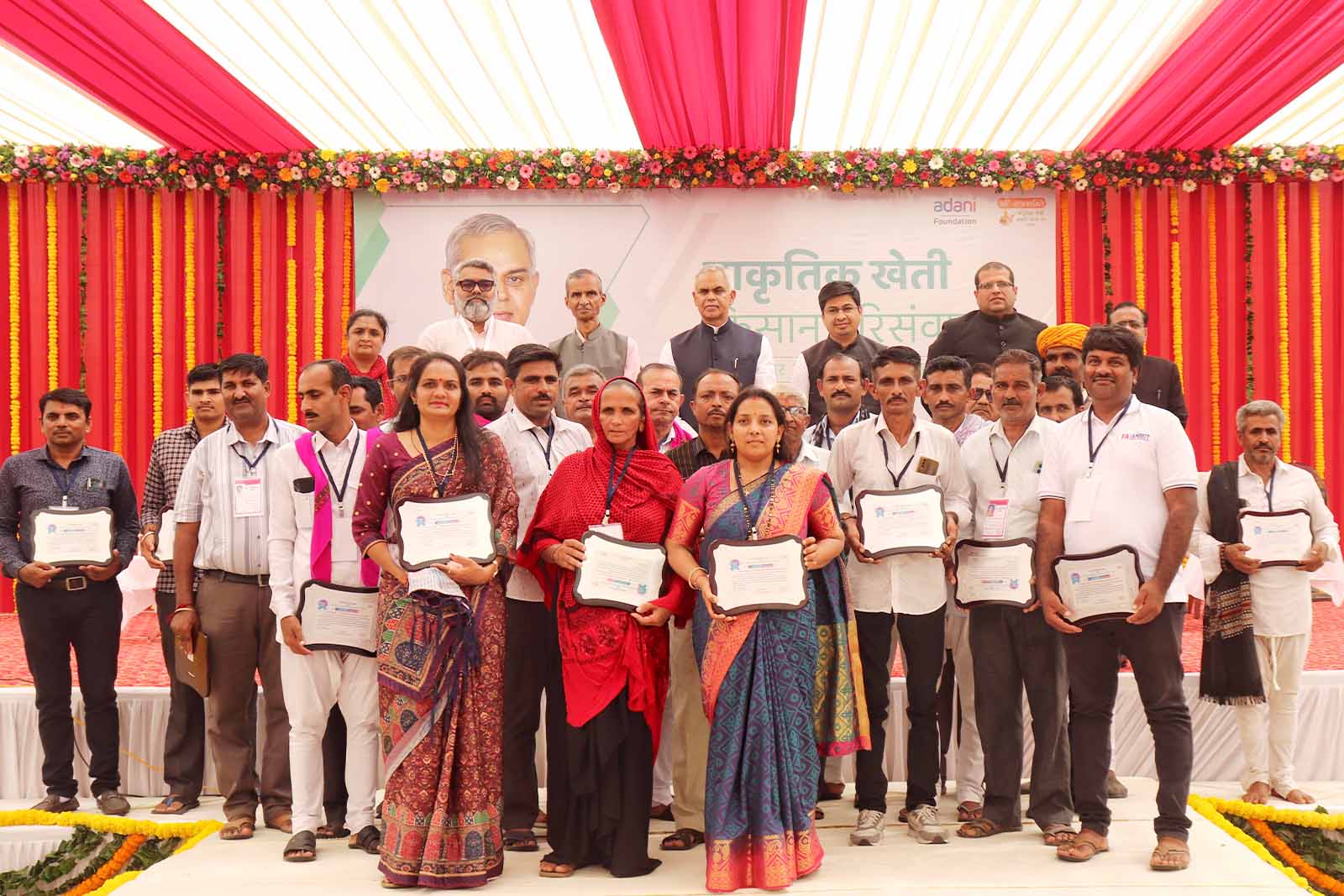
Governor of Gujarat Visits Mundra
Honourable Governor of Gujarat Shri Acharya Devvrat graced a workshop on natural farming in Mundra, Gujarat, visited a model farm and motivated the 2,000+ farmers who came from different parts of Kutch.
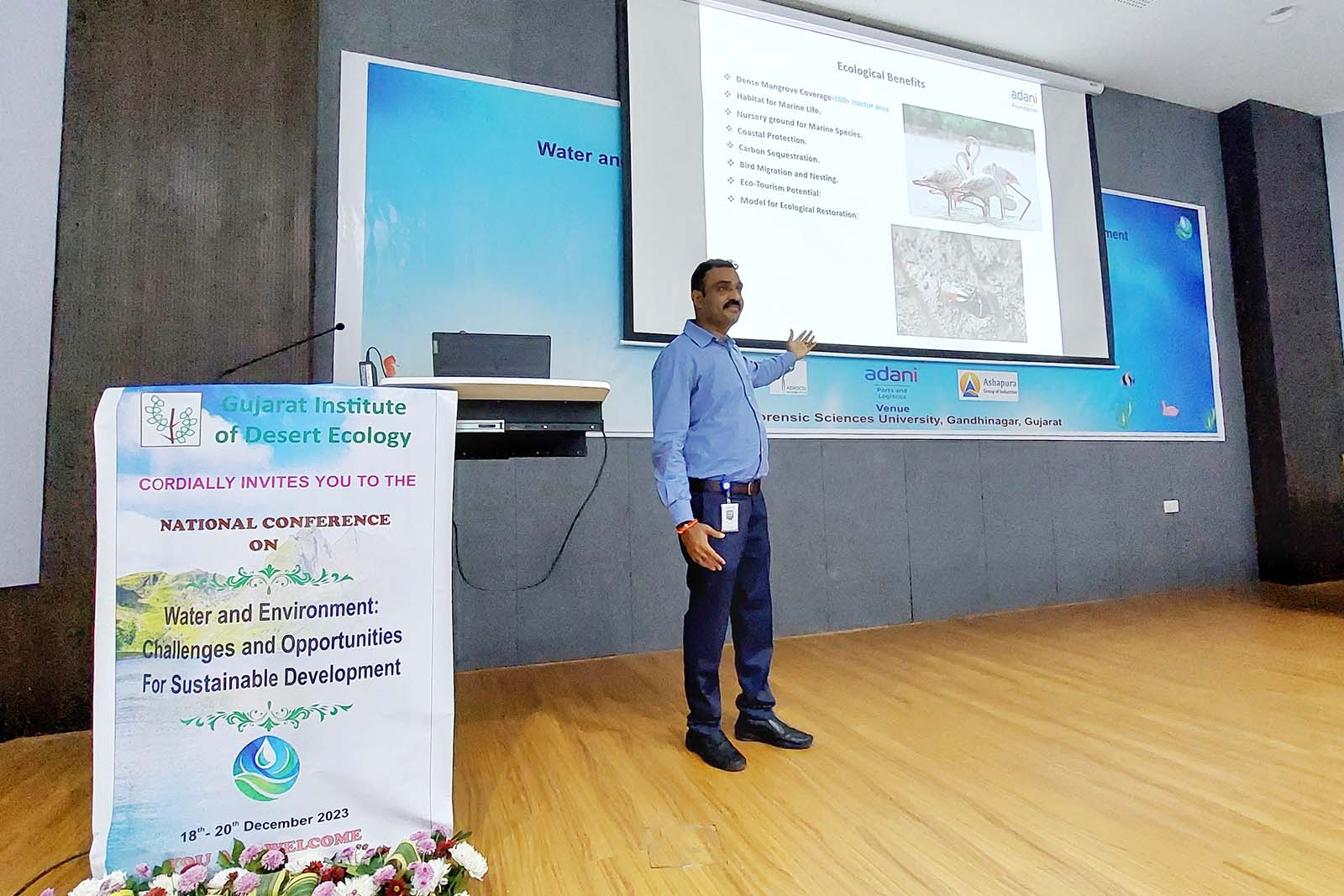
Spotlight: Mangrove Afforestation
Prakash Makwana represented the Adani Foundation’s work in mangrove afforestation at the National Conference on Water and Environmental Challenges and Opportunities for Sustainable Solutions organized by GUIDE at Gandhinagar Forensic Science University.

Digital Transformation Award
Adani Saksham, the skill development wing of the Adani Foundation, has received the prestigious "Best Practice in Digital Transformation" award from CII-Tata Communications Centre for Digital Transformation.
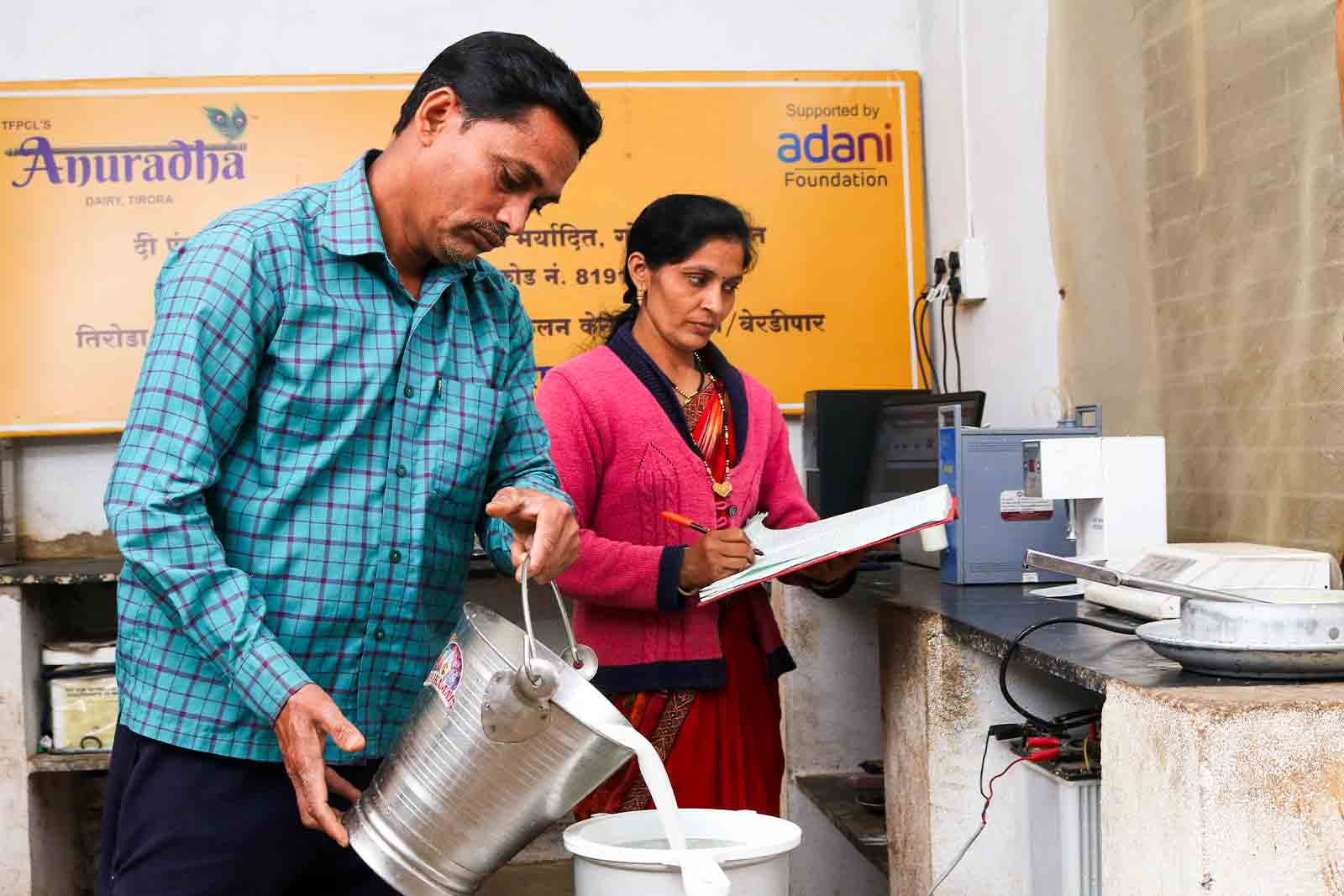
Building Rural India by Optimizing and Scaling Dairy Development
https://www.adanifoundation.org/stories-of-change/building-rural-india-by-optimizing-and-scaling-dairy-development~The livestock sector in India plays a key role in providing livelihoods to more than 80 million rural households and contributes sizably to the national economy.
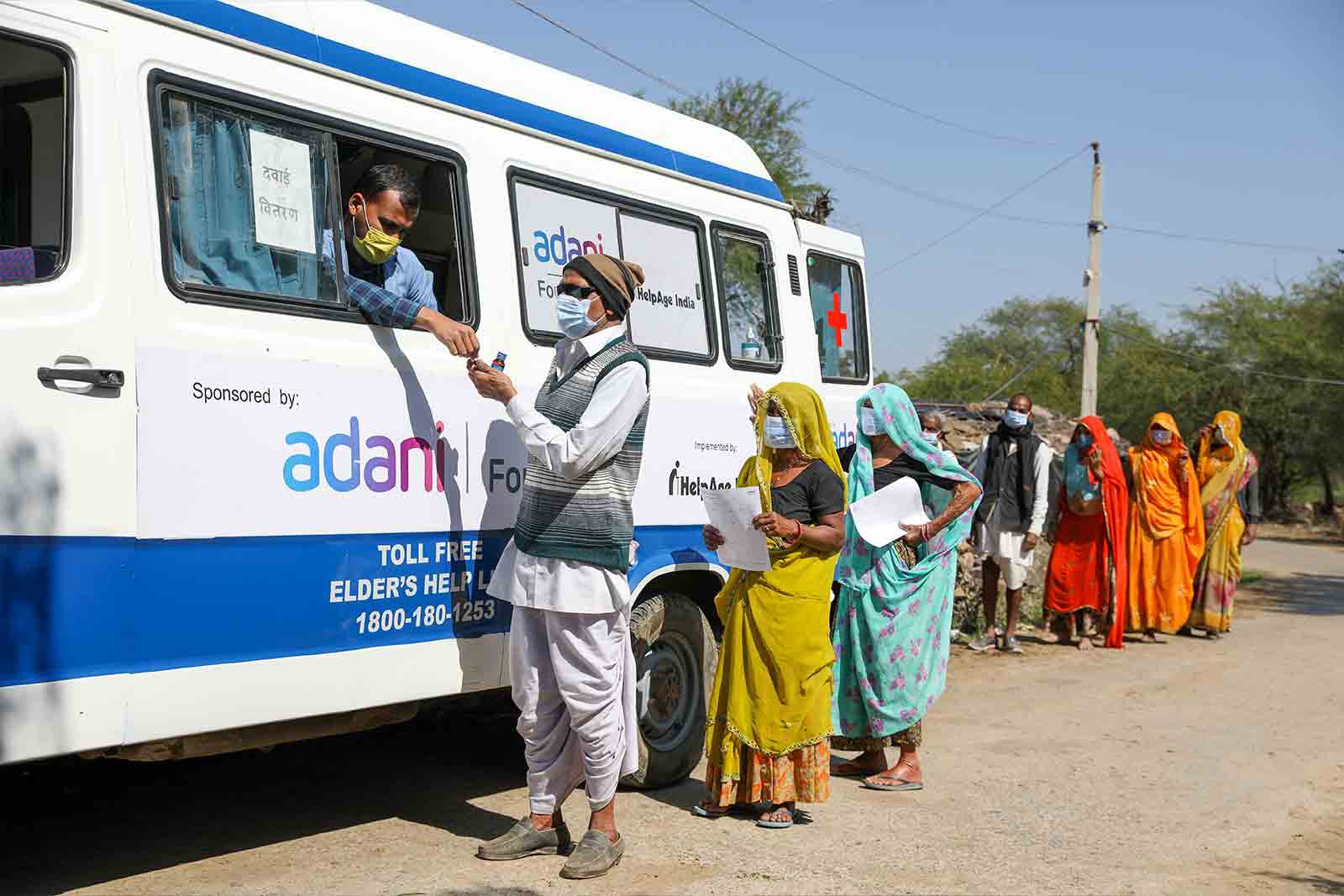
Strengthening Preventive Measures to Supplement Public Healthcare Facilities
https://www.adanifoundation.org/stories-of-change/strengthening-preventive-measures-to-supplement-public-healthcare-facilities~The World Health Organization defines good health as a “state of complete physical, mental and social well-being and not merely the absence of disease or infirmity”.
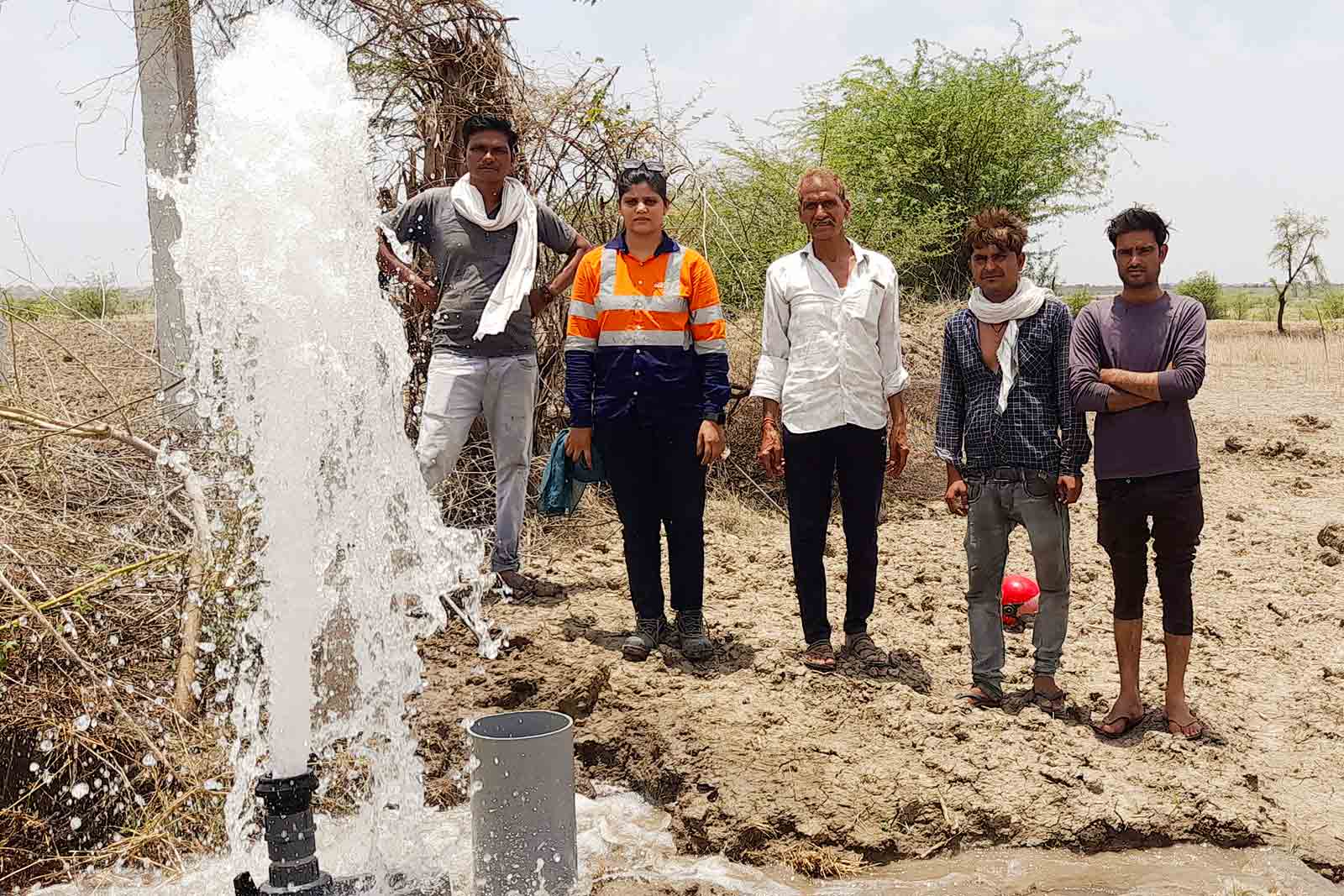
This Village-level Irrigation System in Rajasthan is Helping 500 Farmers
https://www.adanifoundation.org/stories-of-change/this-village-level-irrigation-system-in-rajasthan-is-helping-500-farmers~Gopal Meena lives with six members of his family in Kankra Dungar village in Bundi district of Rajasthan.
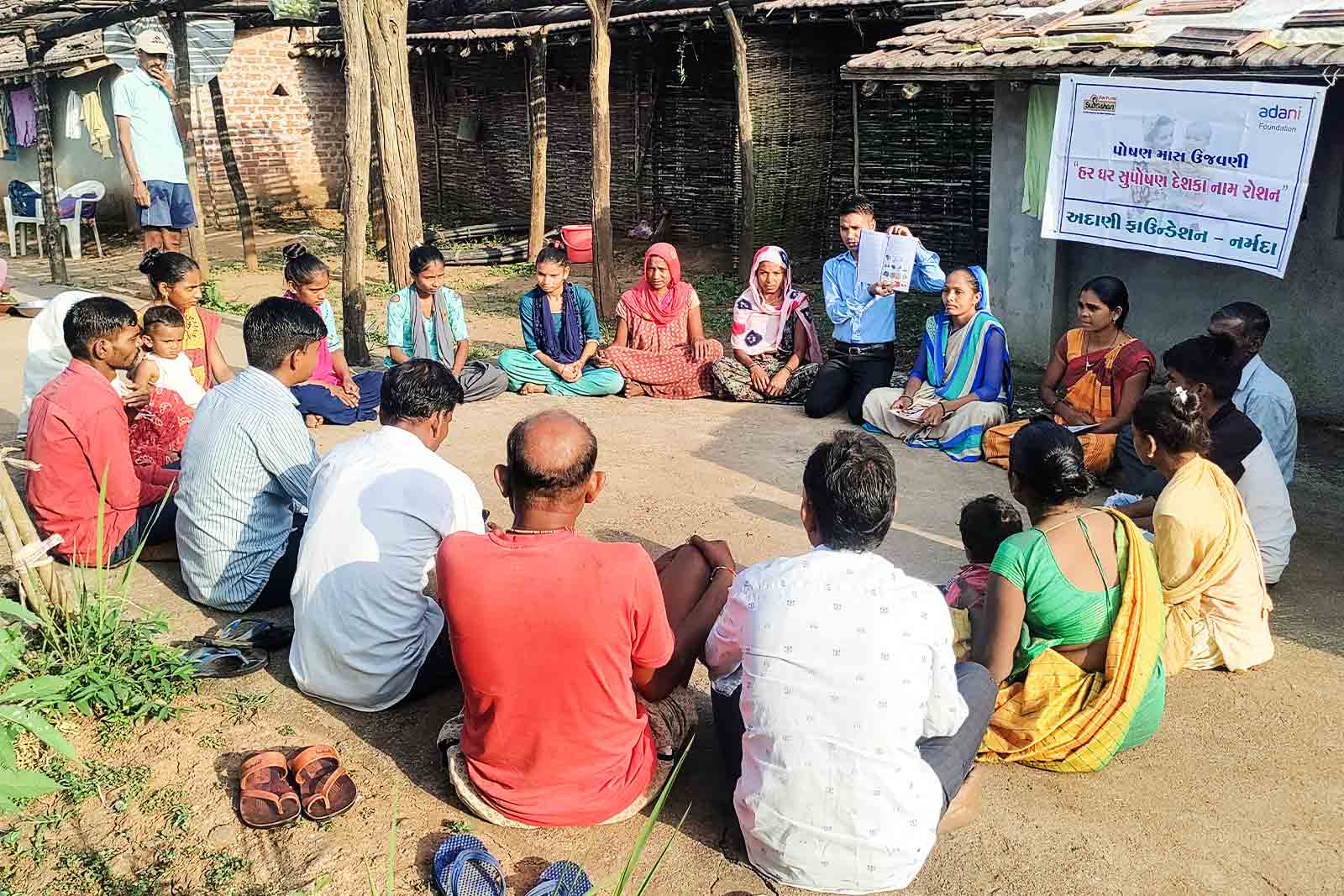
Celebrating Poshan Maah 2023
September brings Poshan Maah – also known as National Nutrition Month. In keeping with the Government of India’s Poshan Abhiyaan, our project SuPoshan was dedicated to spreading the word about good nutrition, to bring alive this year's theme of 'Suposhit Bharat, Sakshar Bharat, Sashakt Bharat'. SuPoshan Sanginis, our village-level heroes,
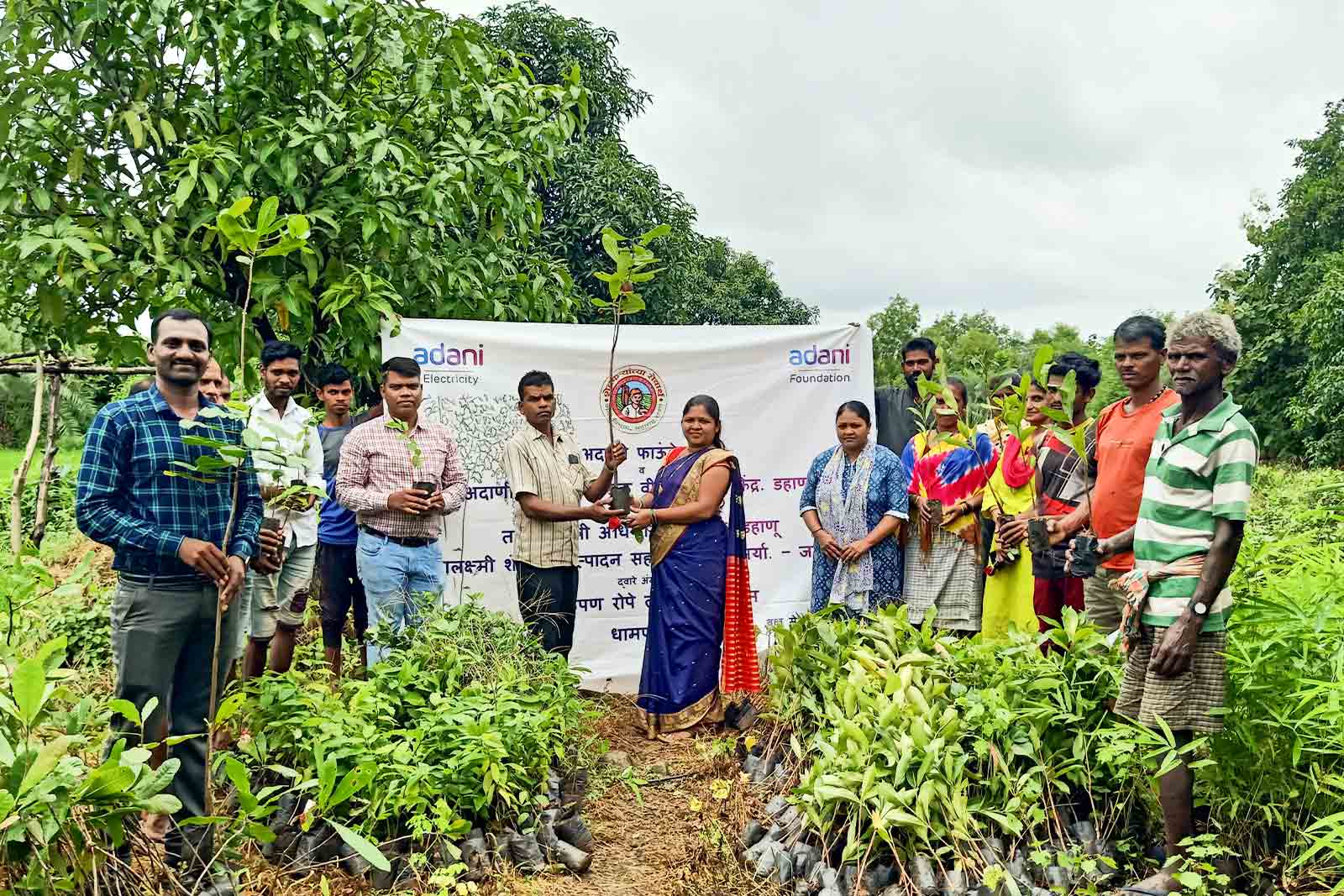
Planting prosperity with farmers
Adani Foundation and Adani Electricity Mumbai Ltd recently planted fruit orchards in Kotbi and Gangangaon villages of Dahanu, Maharashtra, spanning an impressive 70 hectares, breathing life into the soil and promising brighter prospects for the local community. This is being done as part of the Wadi cultivation project to promote
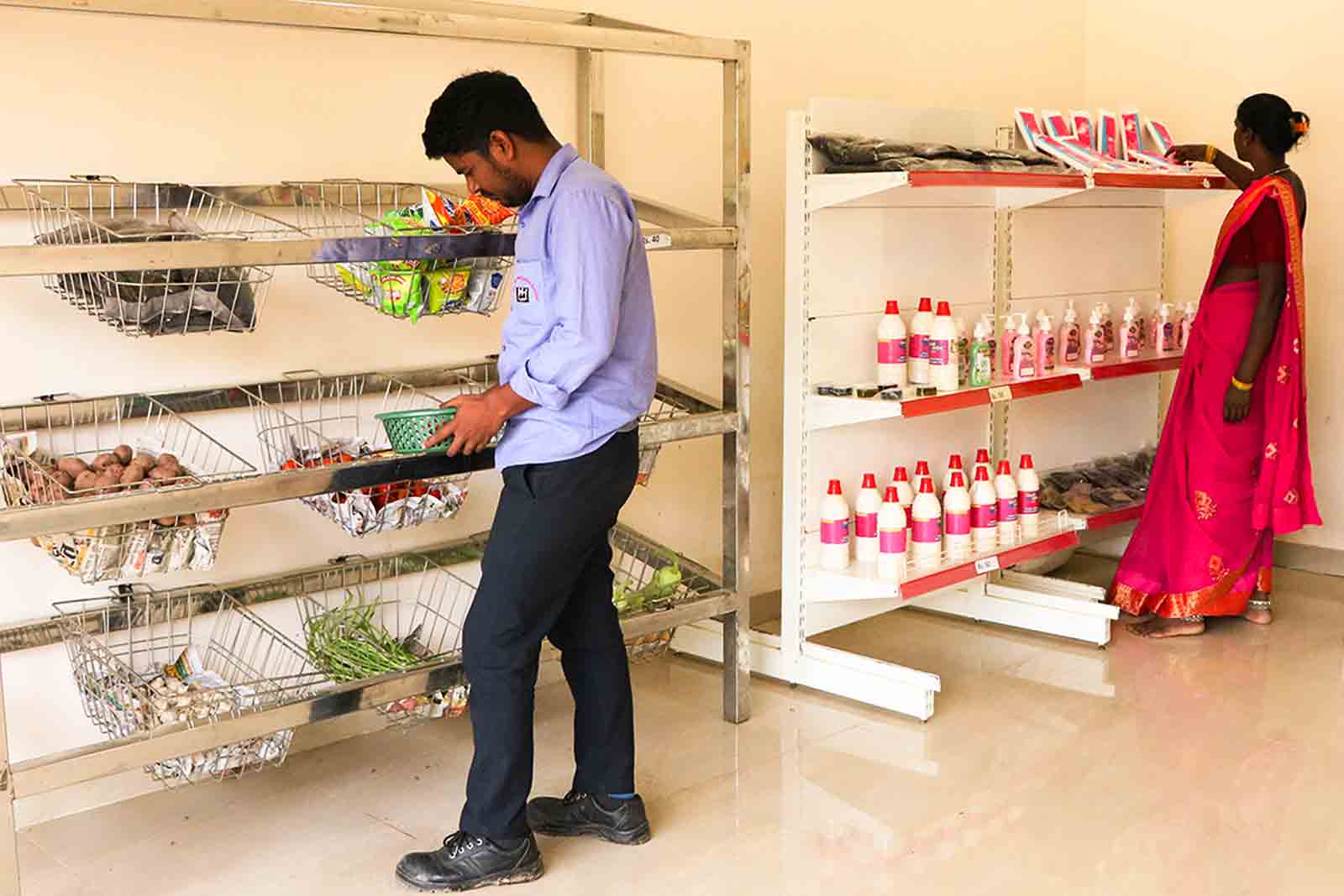
MUBSS Mini Store
Little steps go a long way! Mahila Udyami Bahudeshiya Sahkari Samiti (MUBSS) – a women’s self-help group supported by the Adani Foundation, opened its first mini store in Surguja, Chhattisgarh. Fresh veggies, dairy products, FMCG items, and MUBSS products like masalas are available here. This initiative empowers over 250 women

Green School Award
AVMA proudly clinched the esteemed Green School Award at the 7th NYC Green School Conference, a significant accomplishment. Notably, this achievement aligned with the 78th session of the United Nations General Assembly (UNGA) in New York.

Rakshabandhan 2023
This Rakshabandhan, 50 girls from govt. schools under project Utthan tied rakhis to BSF soldiers at Jakhau border (Bhuj, GJ).
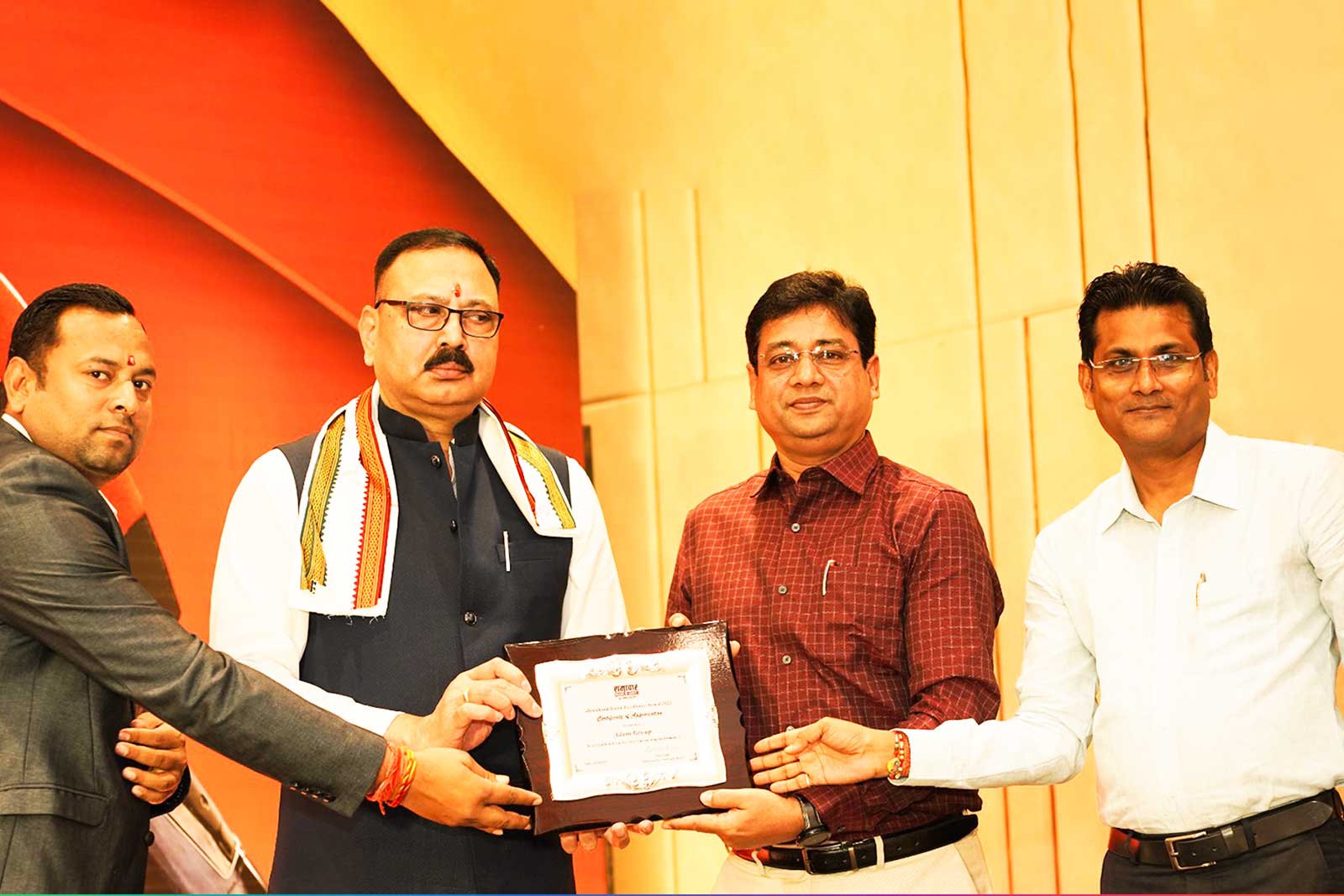
Social Excellence Award
The Adani Foundation’s work in Godda has been felicitated with Jharkhand Social Excellence Award 2023.
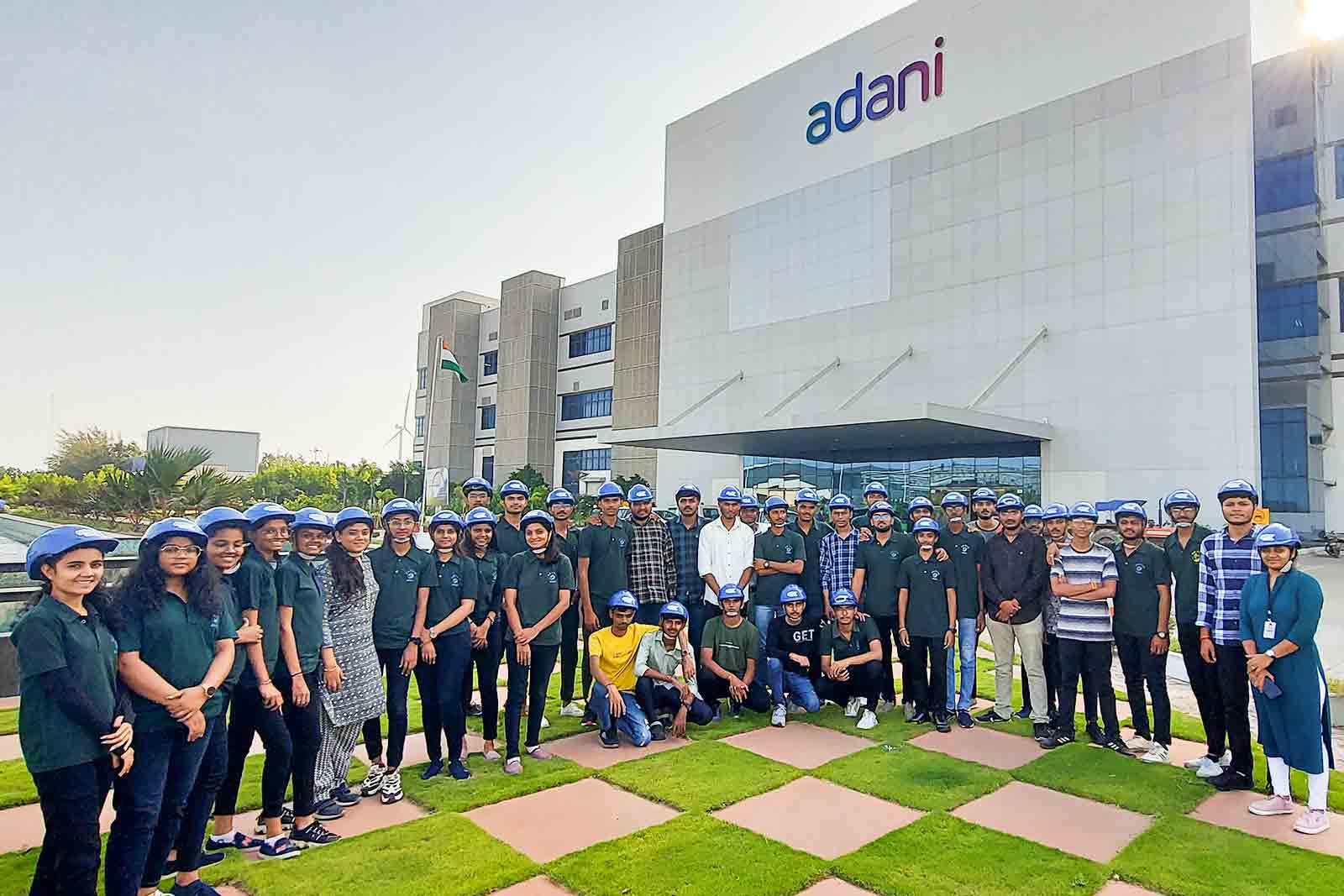
Project Udaan
Students under project Udaan will get see the scale and operations of Adani Solar and Adani wind tech in Mundra, allowing them to gain valuable insights into the world of renewable energy.
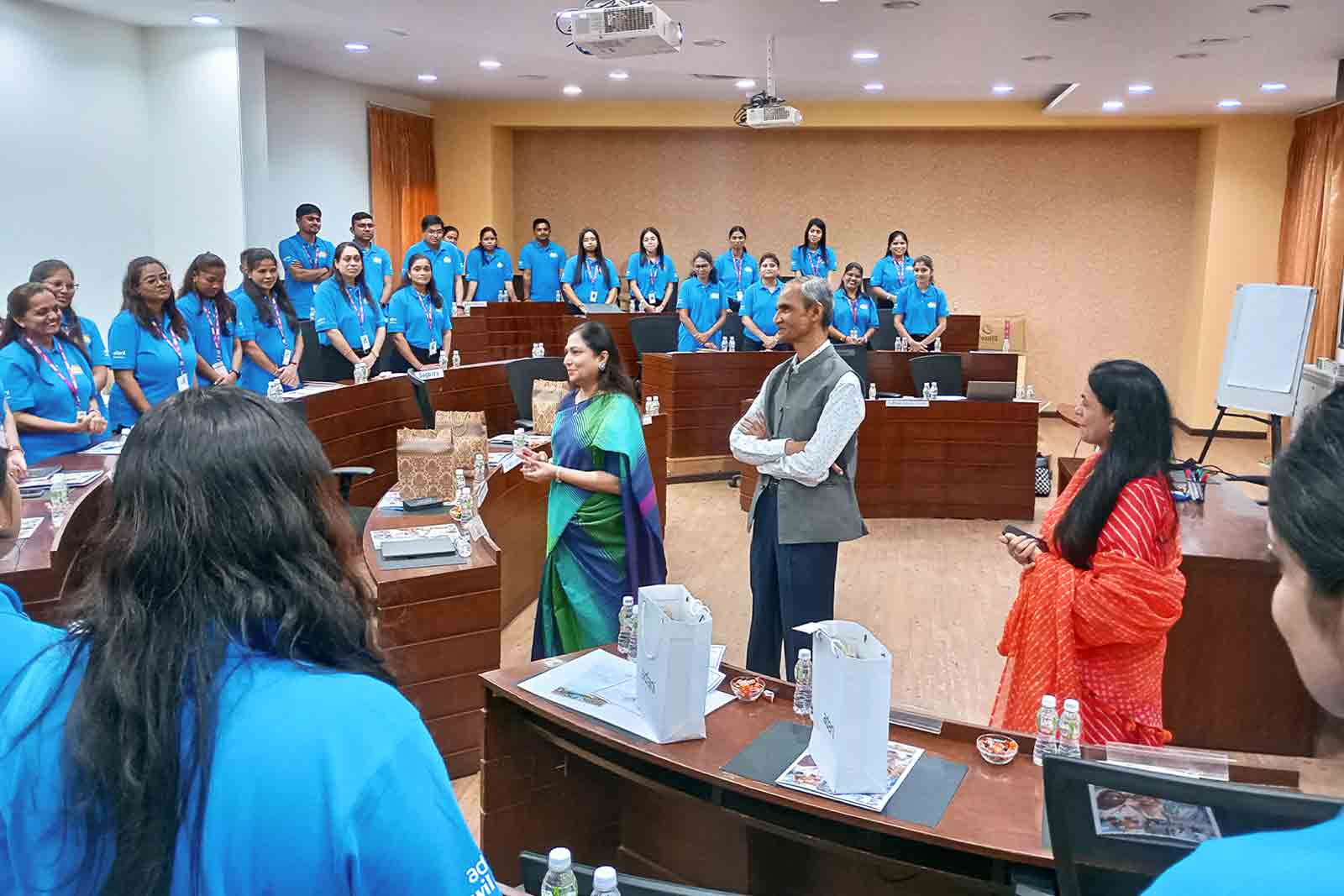
Training For SuPoshan Officers
A Training of Trainers was held for SuPoshan Officers and Assistant SuPoshan Officers who came from 12 states of India to Ahmedabad.
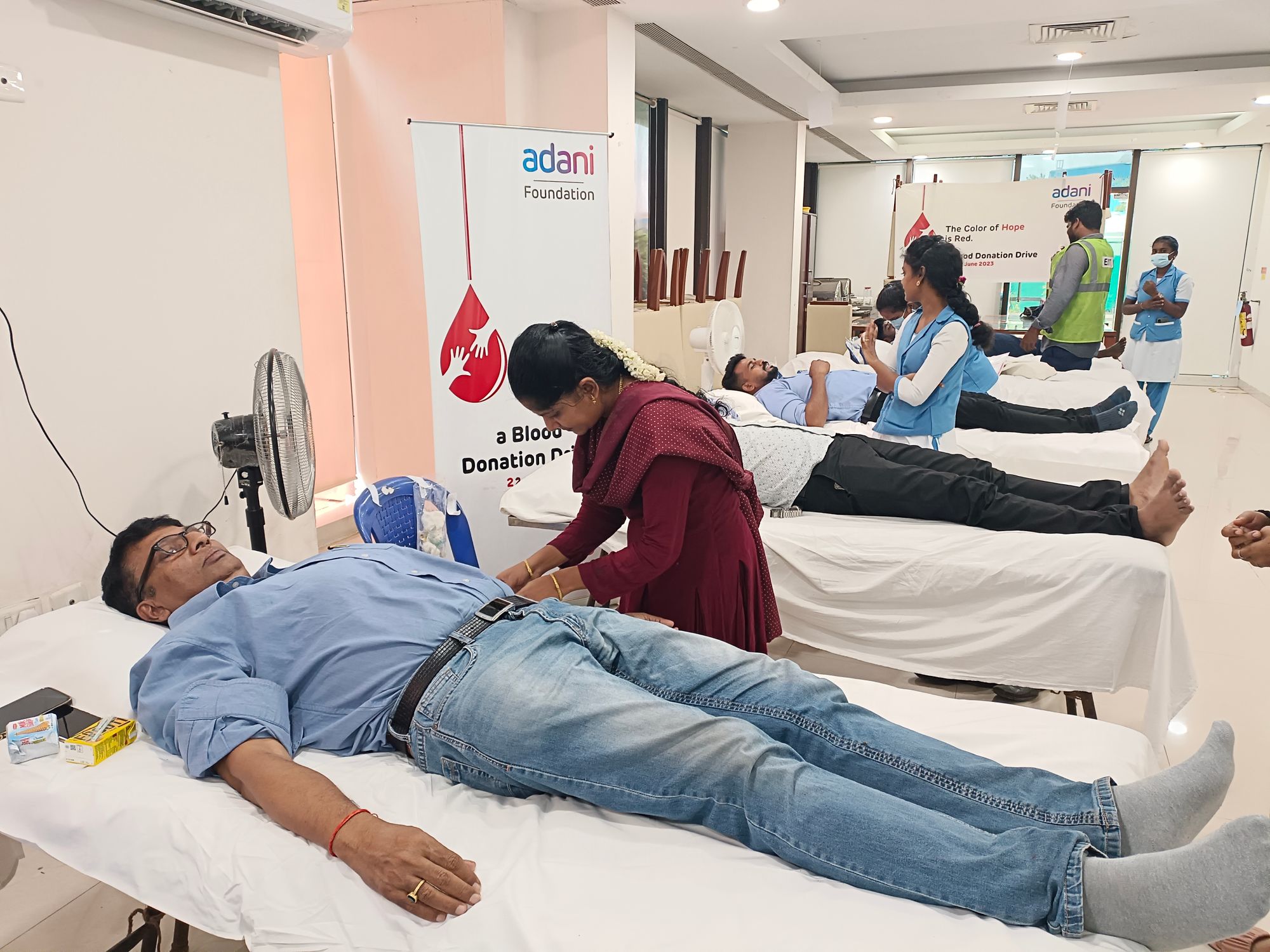
Adanians Donate 20,621 Units of Hope
Adanians, from across the nation, came forward to donate blood on the 61st birthday of Adani Group Chairman Shri Gautam Adani. Since 2011, this birthday tradition has been making the special day truly meaningful. This year too, the comprehensive blood donation drive was organized by the Adani Foundation across 250+
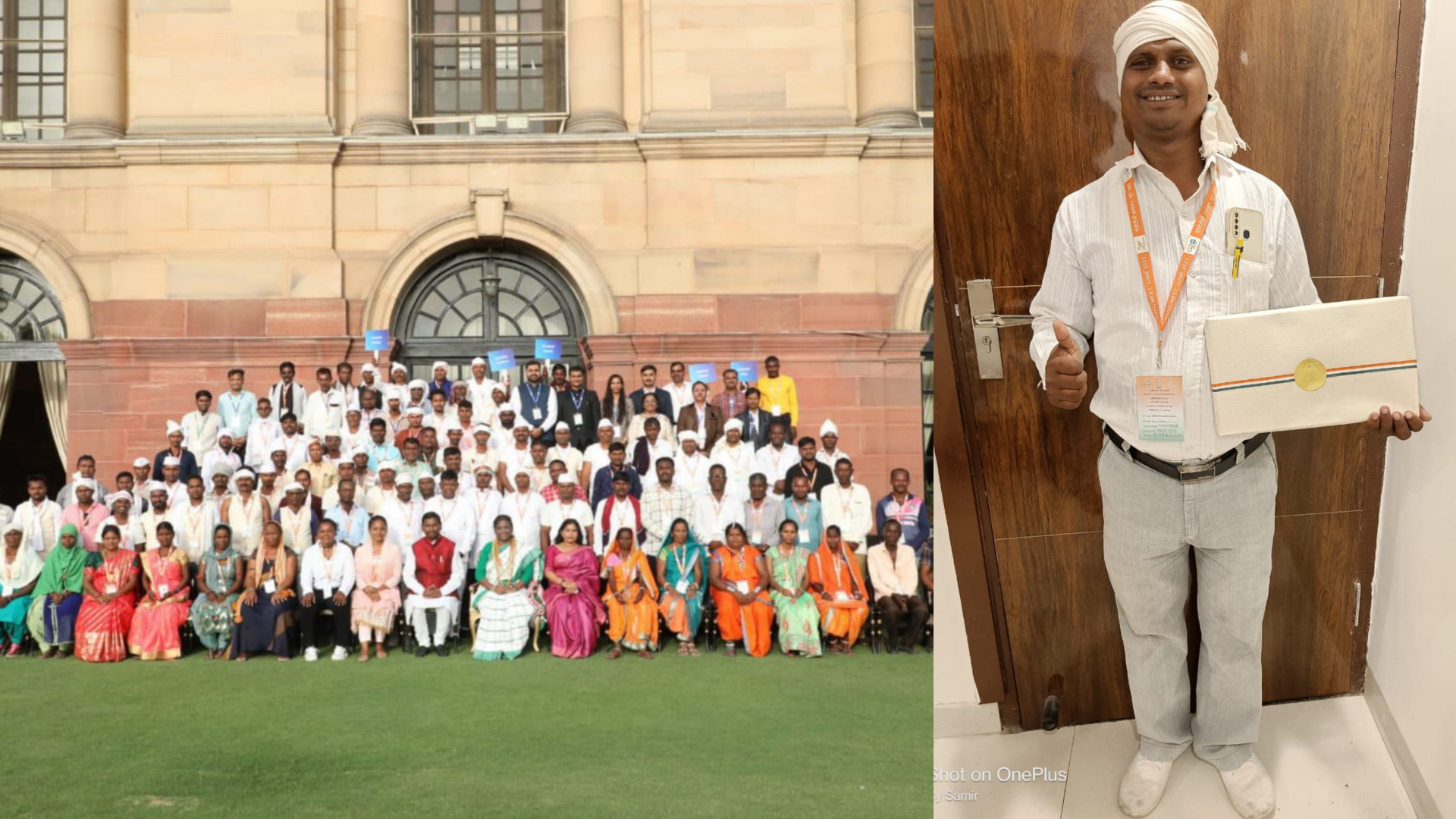
Artisan Vazir Kotwalia meets President Droupadi Murumu
Artisan Vazir Kotwalia, who hails from the Kotwalia community of Gujarat had the honour of meeting India’s President Droupadi Murumu on June 12, 2023. She interacted with the members of 75 Particularly Vulnerable Tribal Groups (PVTGs) from various parts of the country at Rashtrapati Bhavan, of which Vazir was
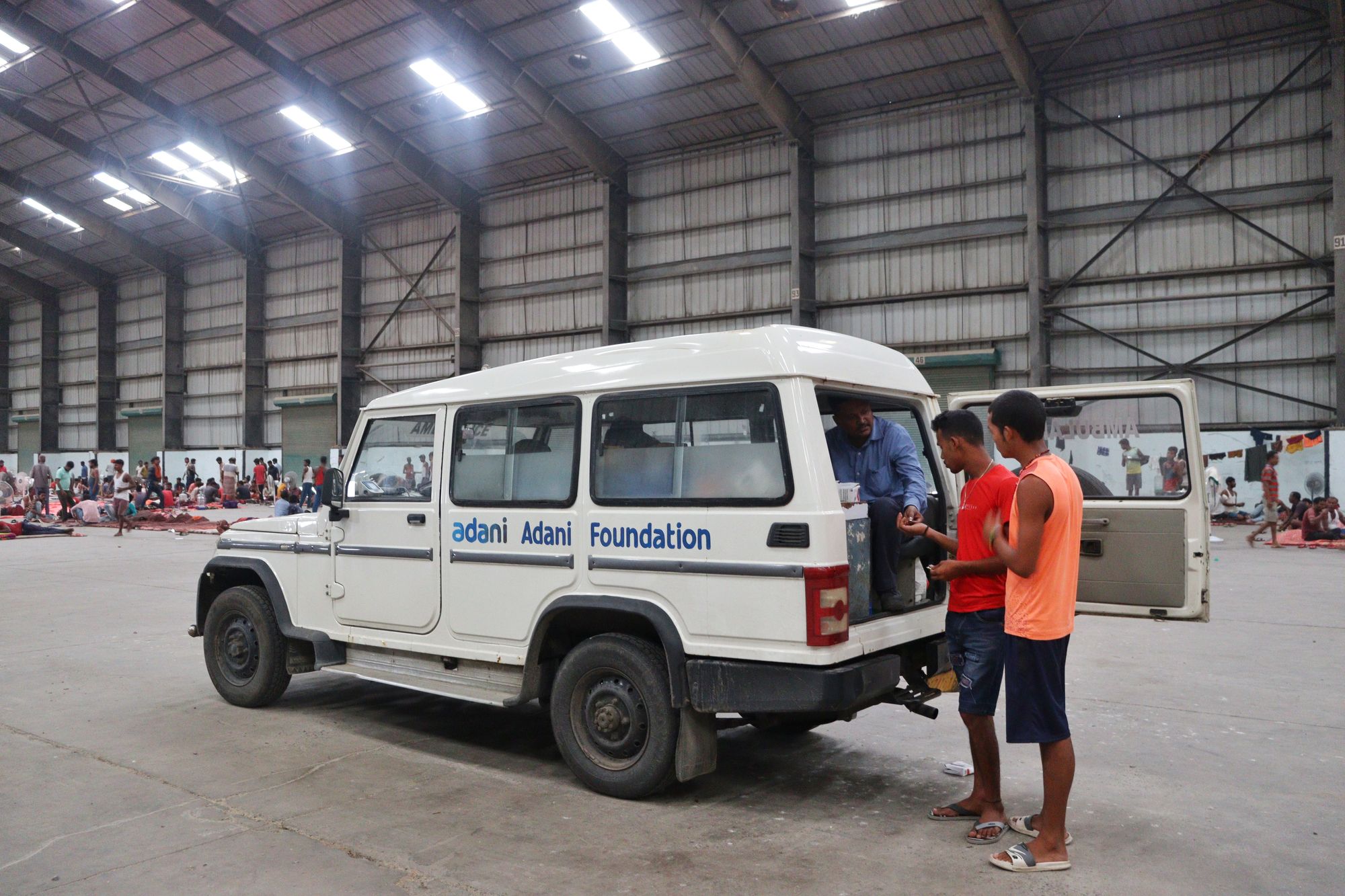
Standing by Kutch in the wake of Biparjoy
Cyclone Biparjoy caused widespread displacement and unrest in Gujarat’s Kutch district, damaging crops, homes, and infrastructure. In the coastal town of Mundra, the Adani Foundation launched comprehensive disaster management and relief efforts in 22 affected villages. To contribute to the preparedness, more than 4,500+ people were transferred to
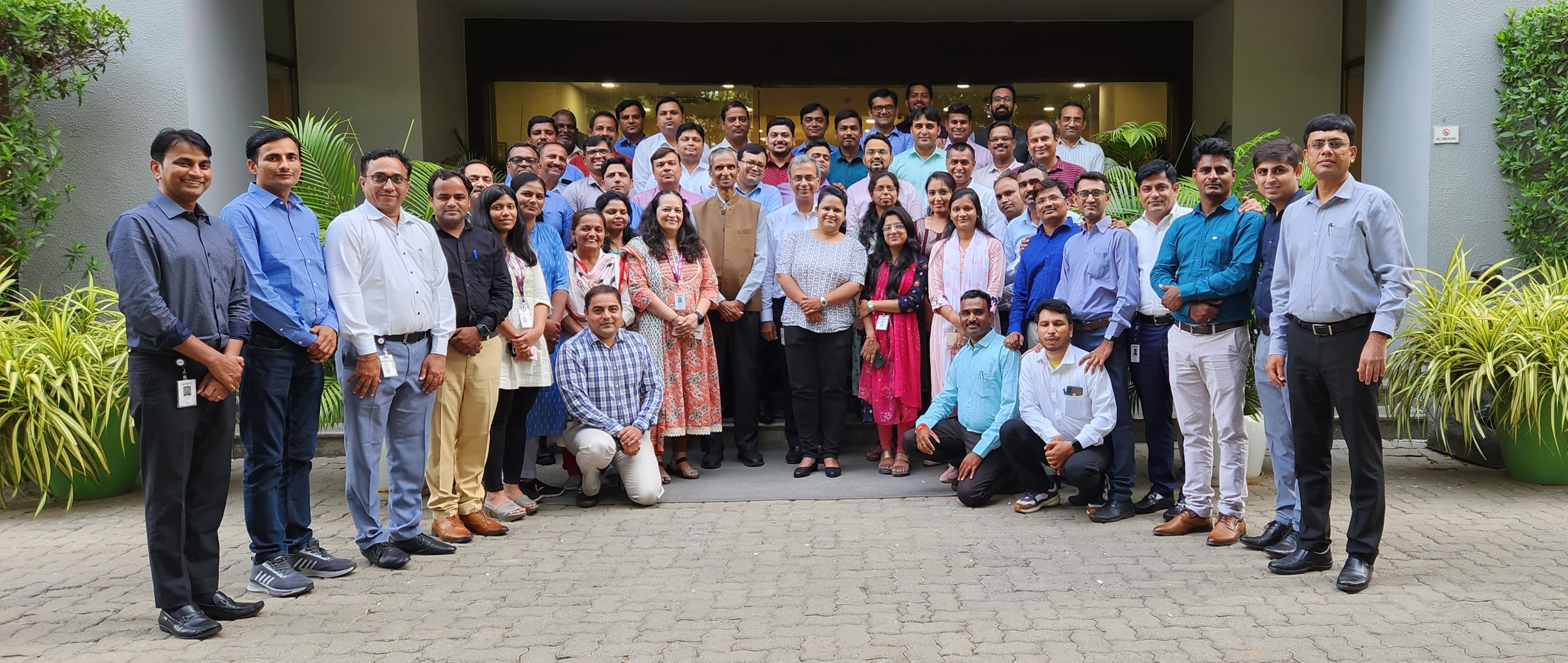
Picture Gallery - Highlights of 2023 April - June
Adani Foundation team members participated in Arohan – an internal mentoring and nurturing programme to empower a pool of competent professionals. Adani Foundation introduced YOGAME – a memory game for children on International Day of Yoga 2023. Watch the video here: https://youtu.be/10MfUAdNMaQ Adani Vidya Mandir, Ahmedabad (AVMA) students greet

Reaching Dhamra’s Deserving Students
The top 30 students from seven Government High Schools in the Adani Dhamra Port (Odisha) periphery were awarded the coveted Dhamra Port Company Limited (DPCL) Merit Scholarship, recognizing their excellent performance in the 2022-23 board exams. All 30 students were honoured with a certificate of appreciation, a medal and financial

Saluting Women Farmers on IWD 2023
Ahead of International Women’s Day 2023 (March 8), we captured stories of women farmers from across our CSR sites, who are practicing, promoting and benefitting from organic farming techniques. Each of these women overcame hurdles in order to manage their homes and farms. Be it the resilience of Savita
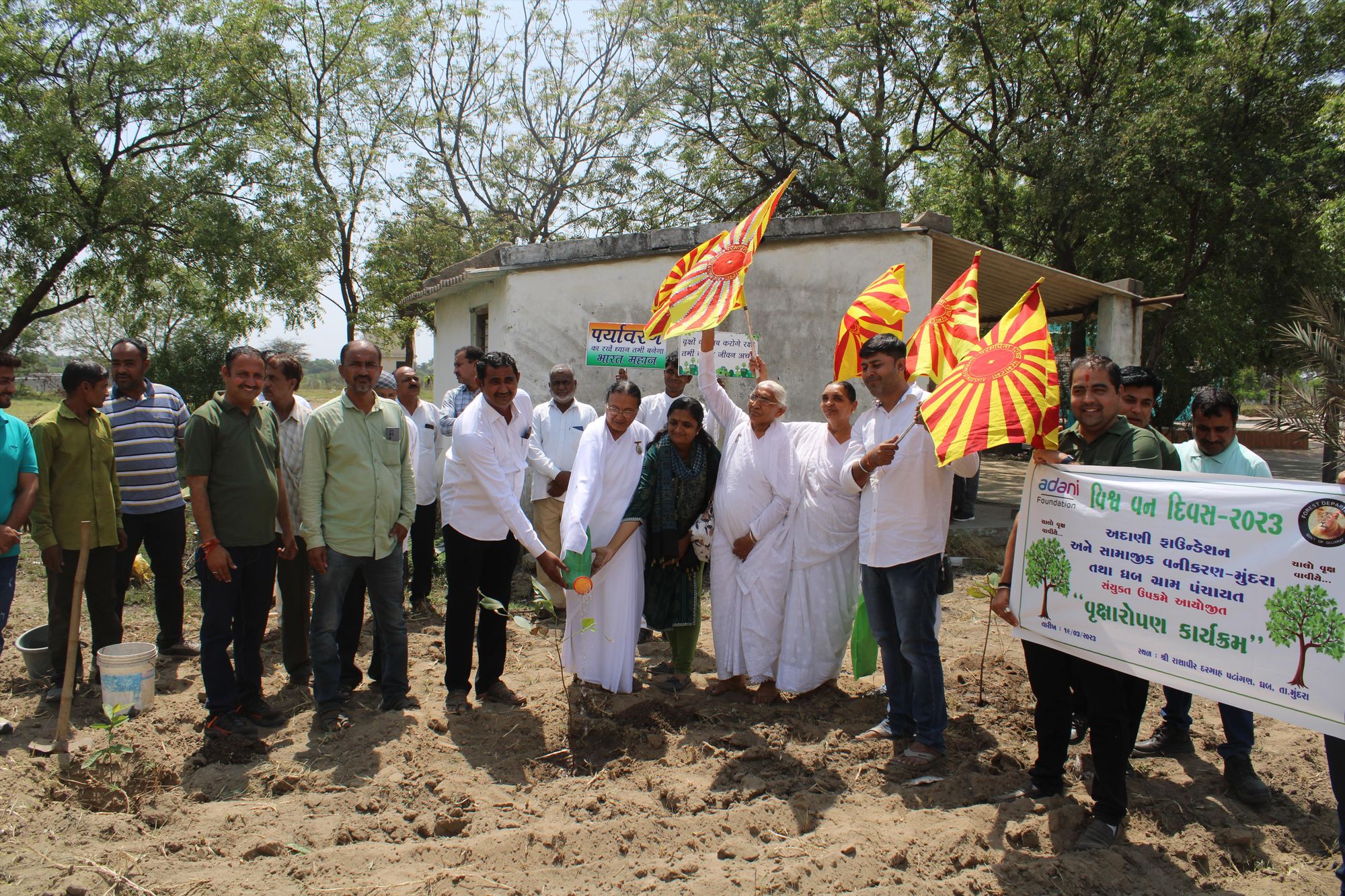
Partnering for a Green Cause in Mundra
This year on International Day of Forests (March 21), the Adani Foundation team in Mundra partnered with the District Forest Department and community members to set into motion a massive tree plantation drive. More than 2200 fruit-bearing trees will be planted in two locations – Bhujpur and Dhrub for agroforest development.

Picture Gallery - Highlights of 2023 January - March
Adani Saksham (Adani Skill Development Centre) bagged the Brandon Hall Group Excellence Award – Gold for the Best Advance in Unique Technology. Project Utthan in Dhamra (Odisha), received the 5th ICC Social Impact Award in the Education category. Utthan is enhancing the quality of education in 236 Govt schools in 4
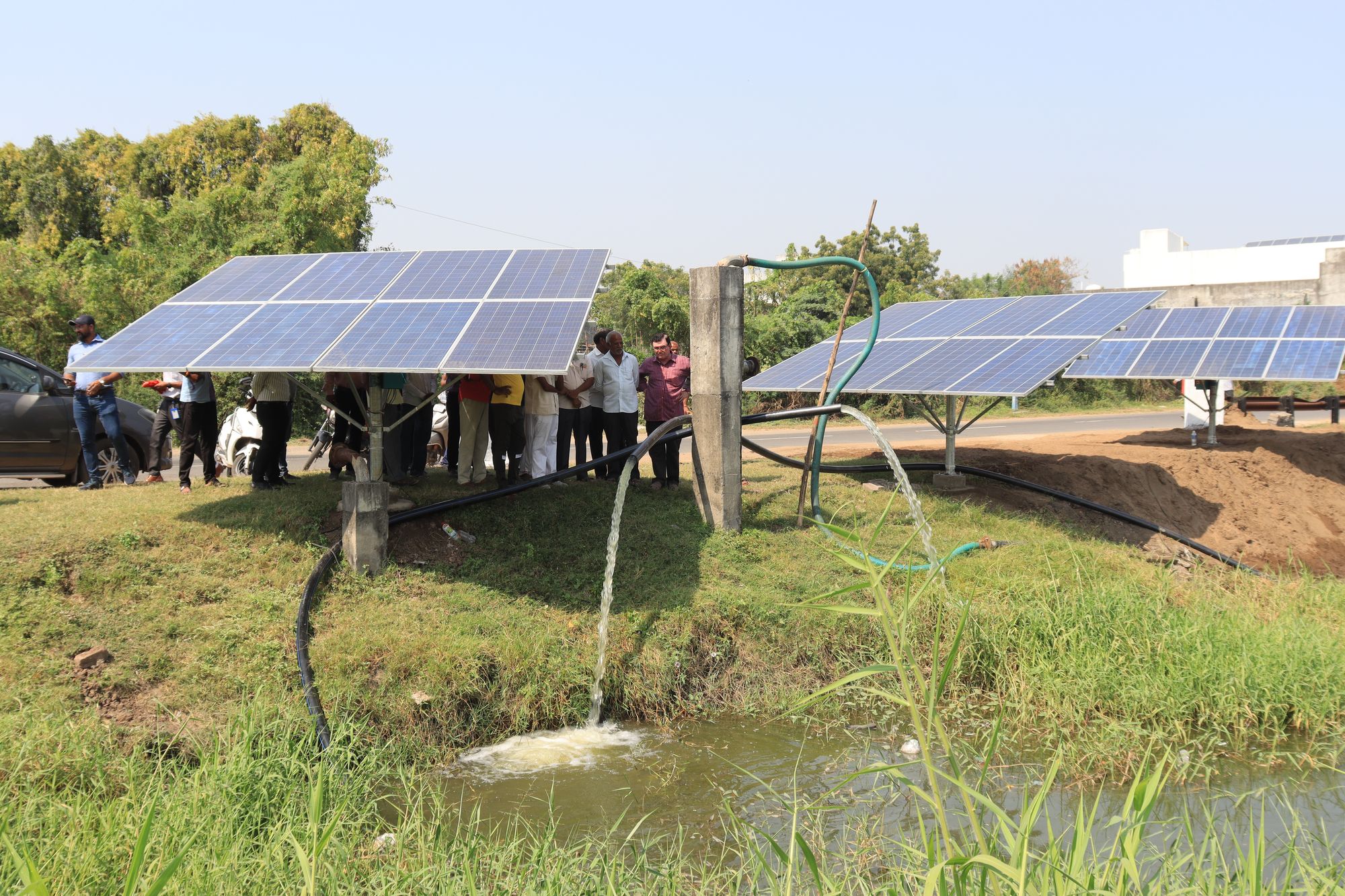
Agriculture in Bhandut is now powered entirely by solar pumps!
Bhandut is a small village in the Olpad block of Surat district, Gujarat. The village’s 688 bigha of agricultural land is now totally irrigated using fifteen 5-HP pumps facilitated by the Adani Foundation, saving money, time, and reducing CO2 emissions. It is a public-private partnership model in which the
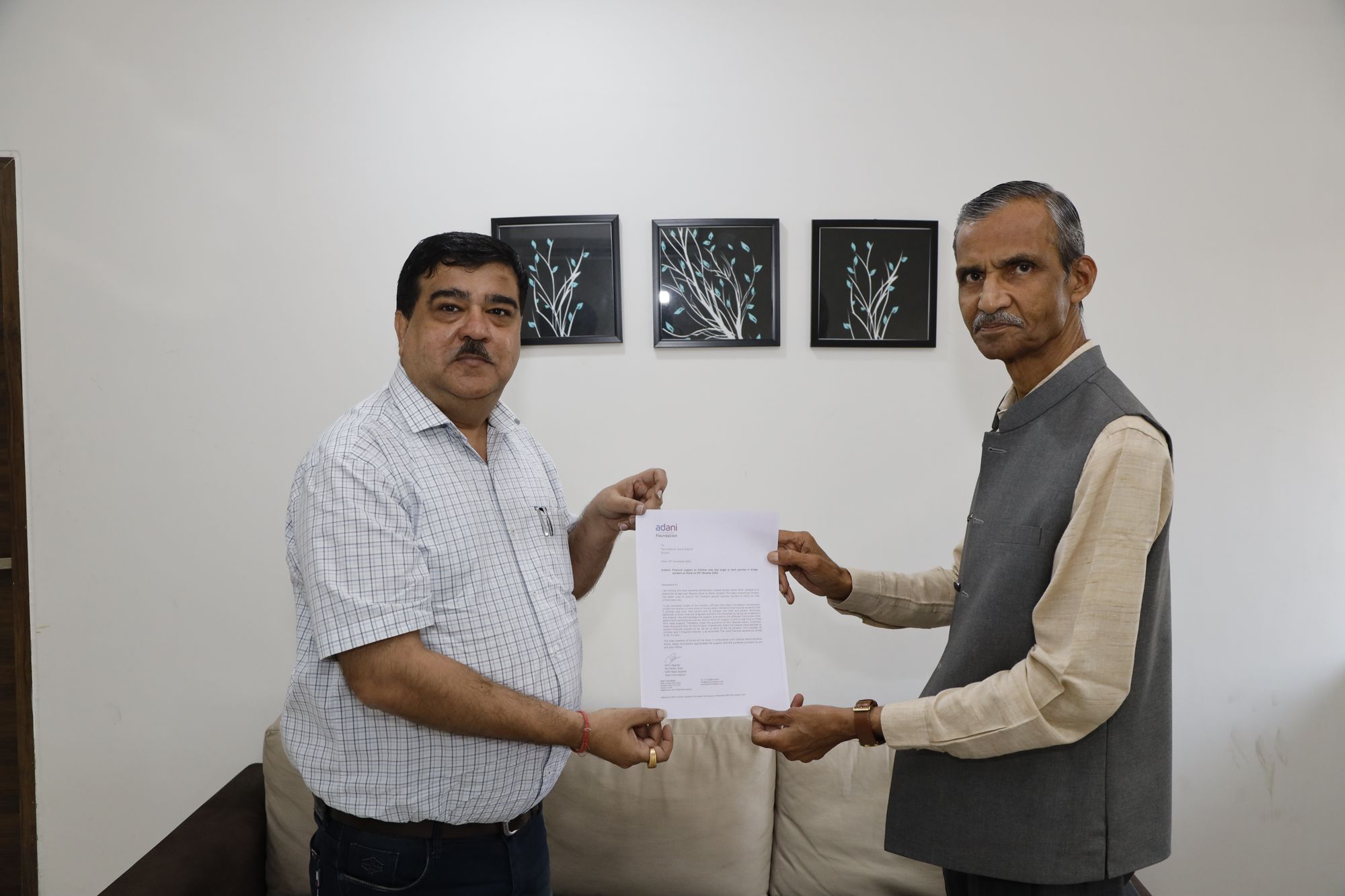
For Morbi’s children, a lifeline from Adani Foundation
Twenty children, including one yet to be born, who lost one or both parents in the Morbi Bridge collapse will benefit from an endowment of Rs 5 crore announced by the Adani Foundation. According to official records, seven children were orphaned after losing both their parents, and 12 children lost
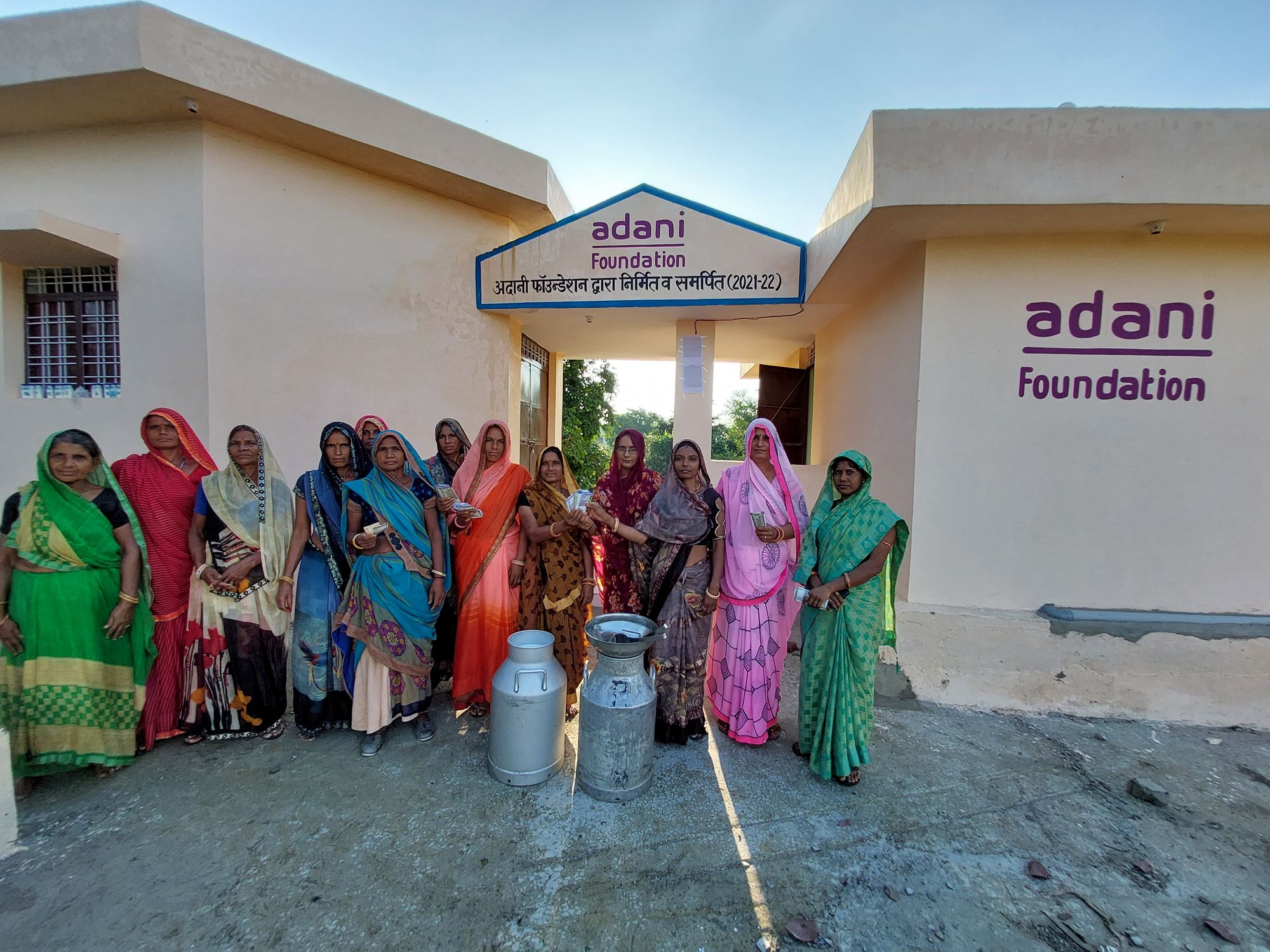
How a group of women in Kawai is helping marginal dairy farmers
In March 2022, the Adani Foundation set up the Hadoti Pragatisheel Producer Company Ltd. in the Kawai village of Rajasthan to facilitate the sale of surplus milk. It all started in 2017 when we instituted the cattle breed improvement project for enhanced dairy production in the region. After its success,
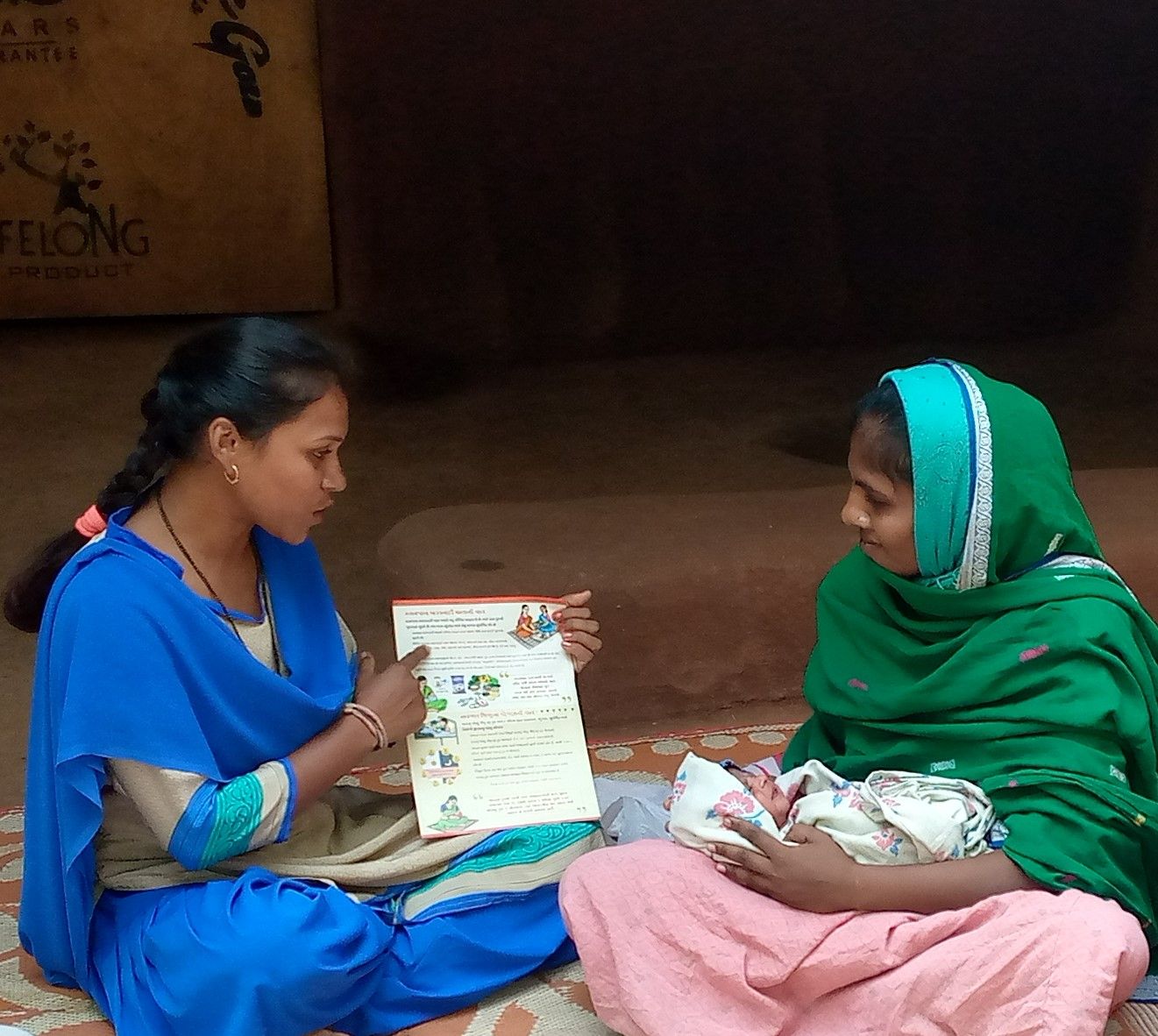
Picture Gallery - Highlights of 2022 October - December
As part of Project SuPoshan, Newborn Care Week (15–21 November) was celebrated across 14 locations in 12 states, reaching out to 41,043 beneficiaries. Adani Vidya Mandir, Surguja has taken a significant step toward giving 410 tribal students a modern learning experience by providing them with personalised tablets with
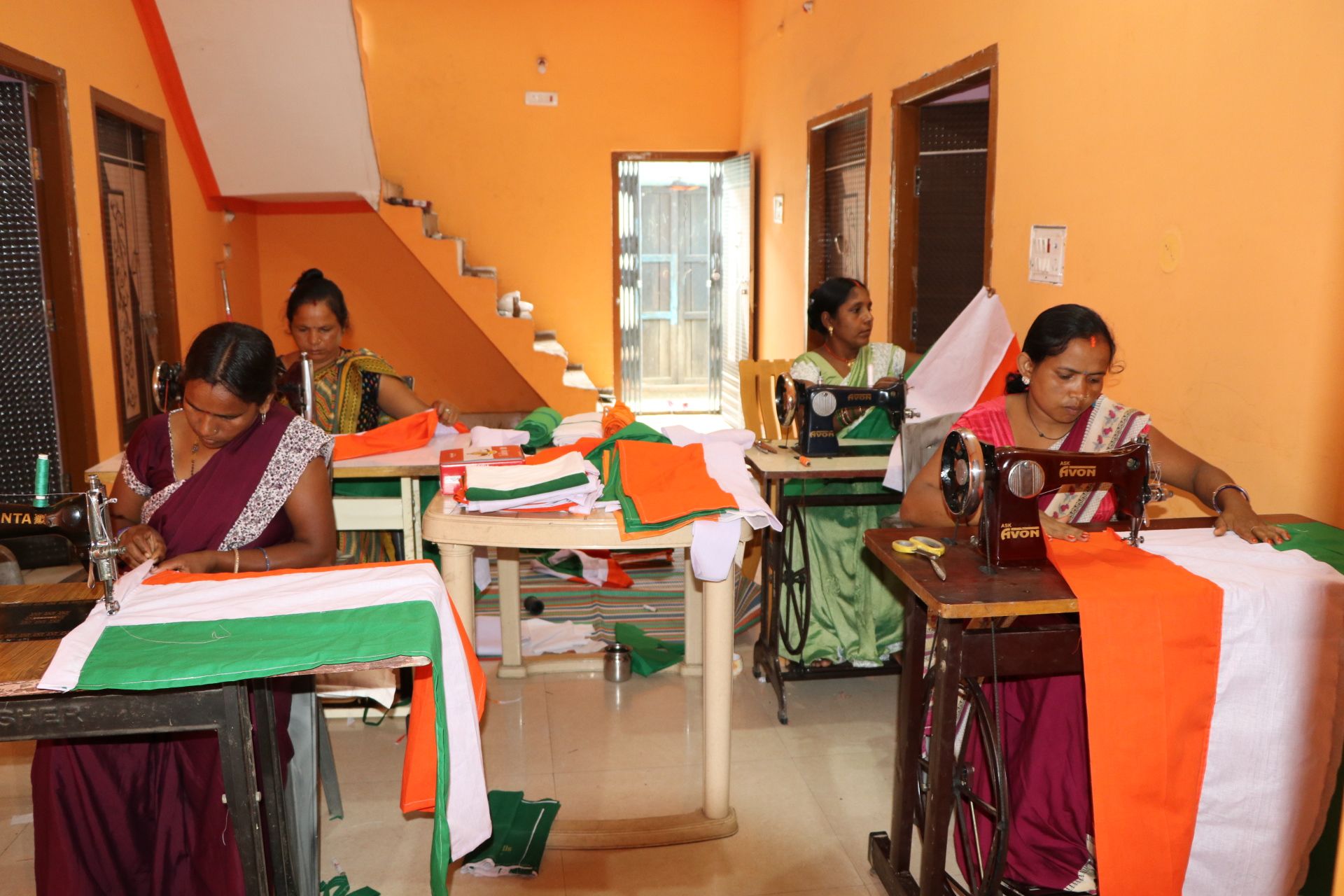
The torchbearers of Aatmanirbhar Bharat
As India commemorated 75 years of independence on August 15, 2022 and celebrated Azadi Ka Amrit Mahotsav with utmost fervour, the Adani Foundation teams too played their part. Contributing to Prime Minister Shri Narendra Modi’s #HarGharTiranga campaign, were our women’s Self-Help Groups (SHGs) in rural parts of Godda,
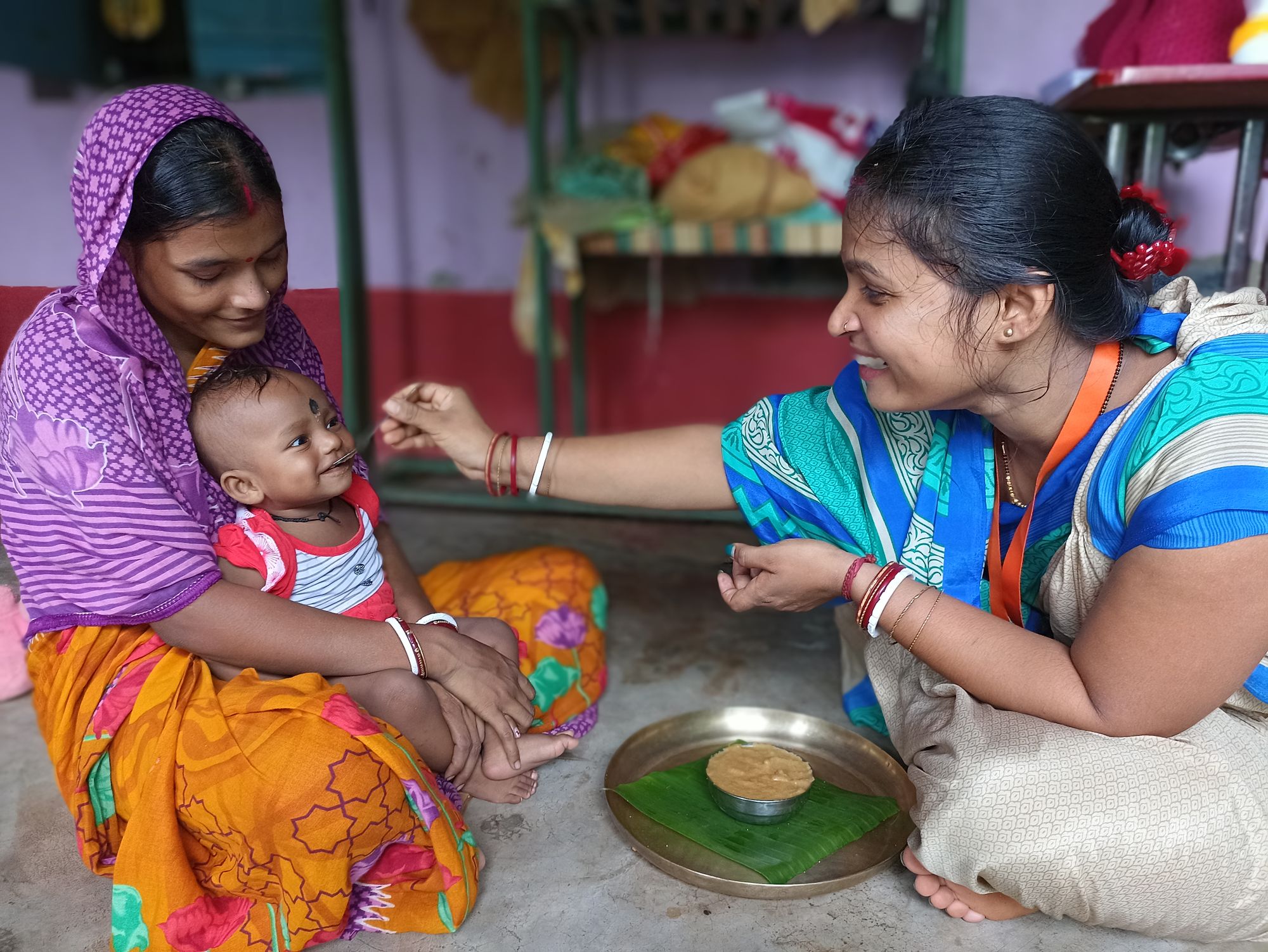
Celebrating National Nutrition Month 2022
Under the aegis of Government of India’s POSHAN Abhiyaan, September is celebrated as Poshan Maah (National Nutrition Month) each year. In coordination with the Integrated Child Development Services (ICDS) Department, our SuPoshan Sanginis under project Fortune SuPoshan are leaving no stone unturned to spread awareness! Many beneficial and educative
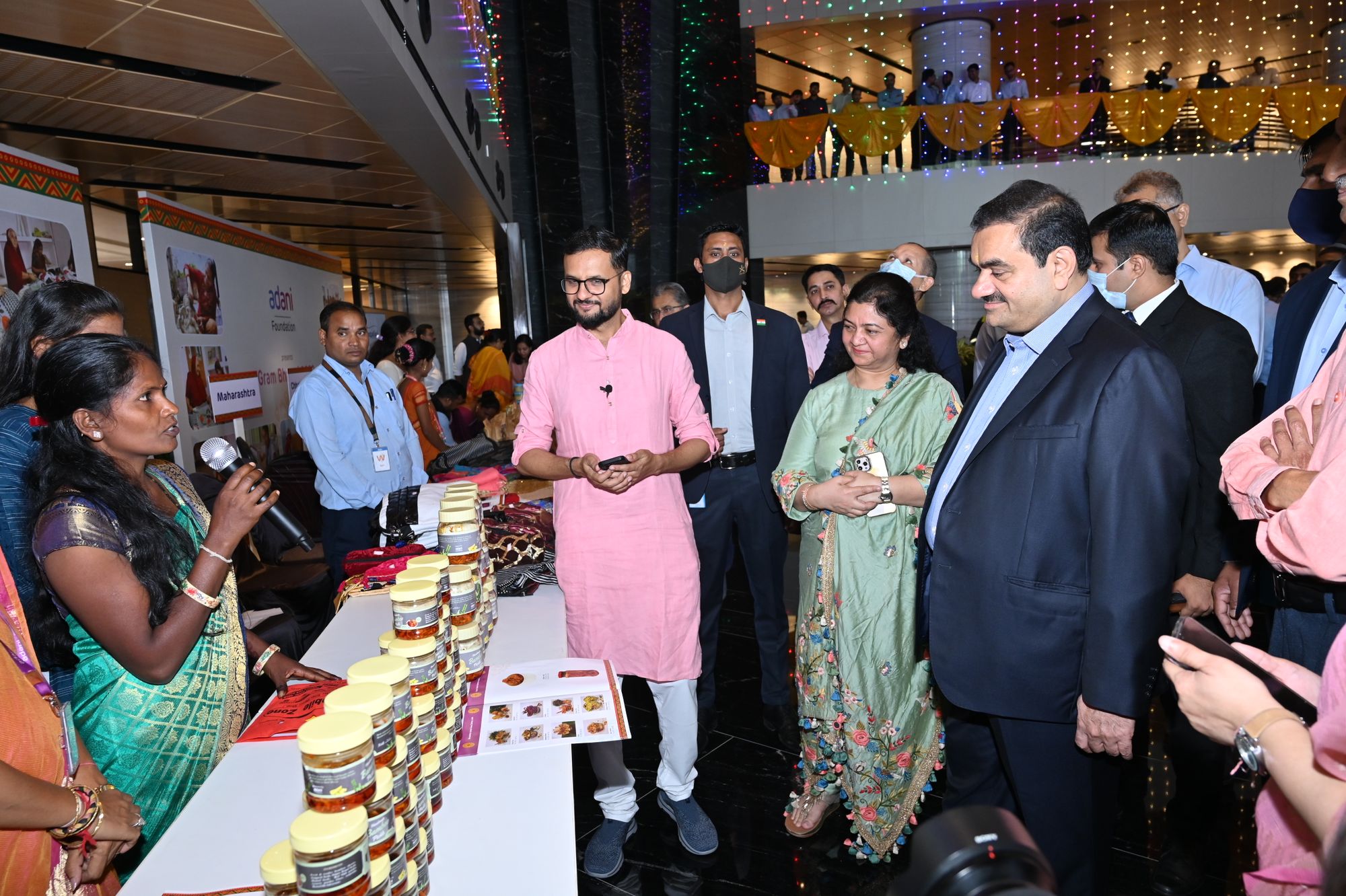
Ground Connect through Gram Bharati 2022
Ahead of the festive season, the Adani Foundation curated Gram Bharati 2022 to bring beautifully handmade products from across India to Adani Corporate House. It was inaugurated by chairman Shri Gautam Adani on the first day of Navratri. In a way, this exhibition cum sale offered Adanians a glimpse of
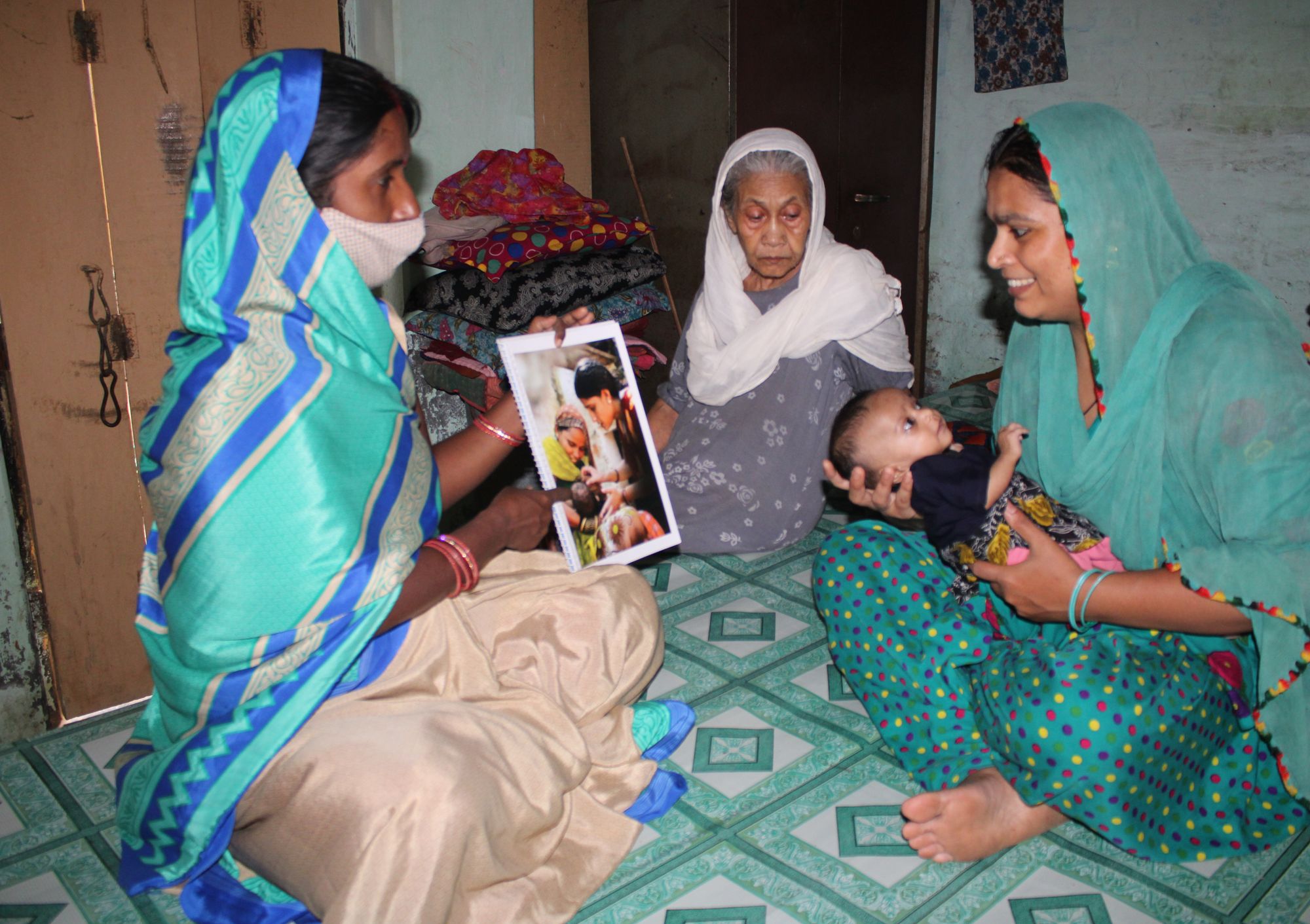
Picture Gallery - Highlights of 2022 July - September
As part of project SuPoshan, World Breastfeeding Week (1st - 7thAug) was celebrated across 14 locations spread in 12 states reaching out to 23,808 beneficiaries. Adani Skill Development Centre won “Organizational Excellence Award for Women Empowerment” at CMO Asia Awards. Project Gyanodaya Godda made its presence felt at the

A Unique Way to Celebrate Int’l Yoga Day
In the run-up to India’s 75th Independence Day, celebrated across India as ‘Azadi ka Amrit Mahotsav’, the Adani Foundation organised a yoga tour of the state of Gujarat. The tour covers 75 heritage, tourist, archaeological sites, and landmark architectural sites, reflecting the state’s richness and vibrancy. At these
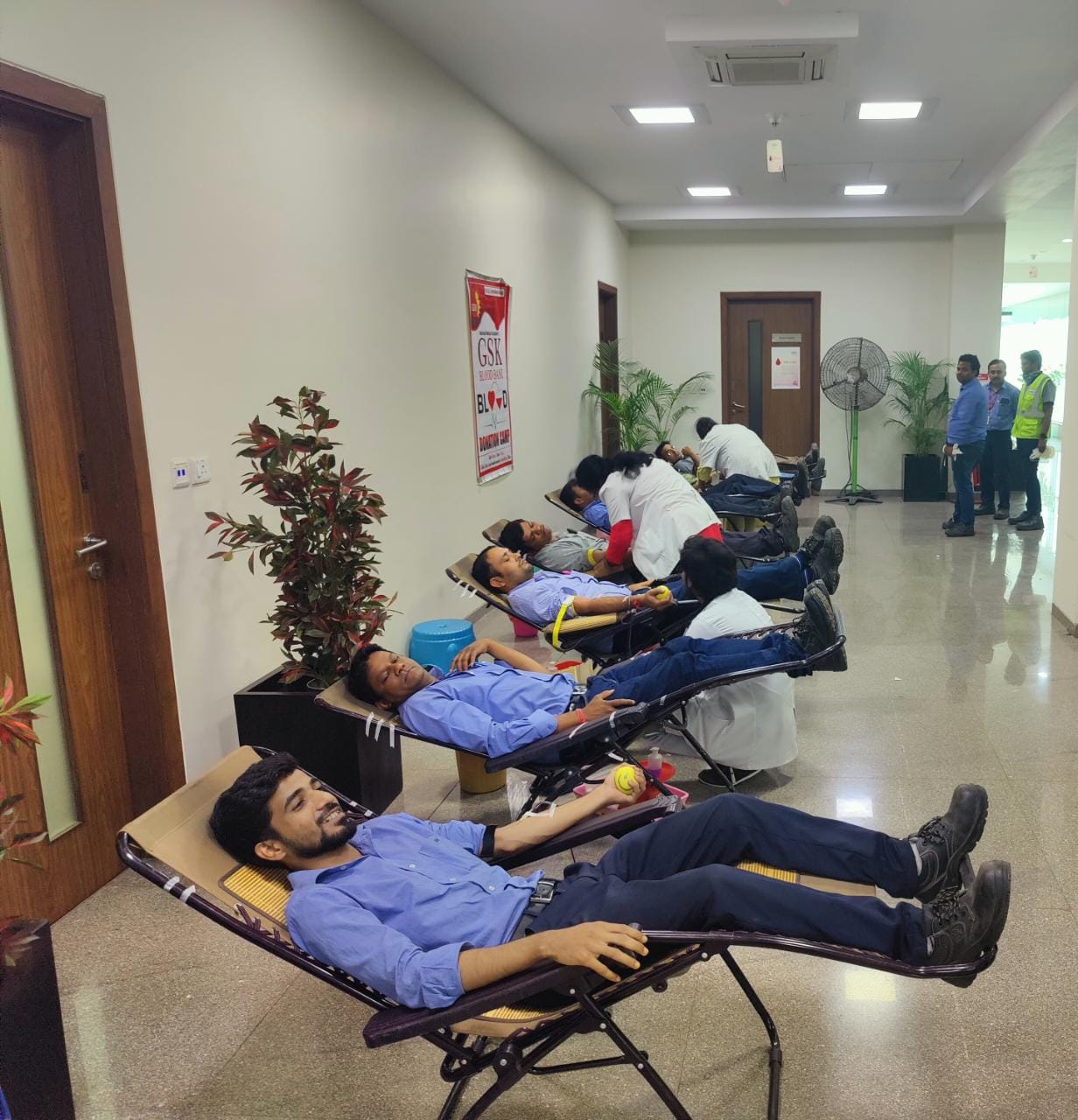
GSA@60: 14,000 Adanians Donate Blood
A record 14,000 Adani employees donated blood at various locations across the country on June 24. Every year, on the Chairman’s birthday, the Adani Foundation organizes a voluntary blood donation drive. This year, 14,000 units were collected, amounting to 5,600 litres of life-saving blood. Blood donation
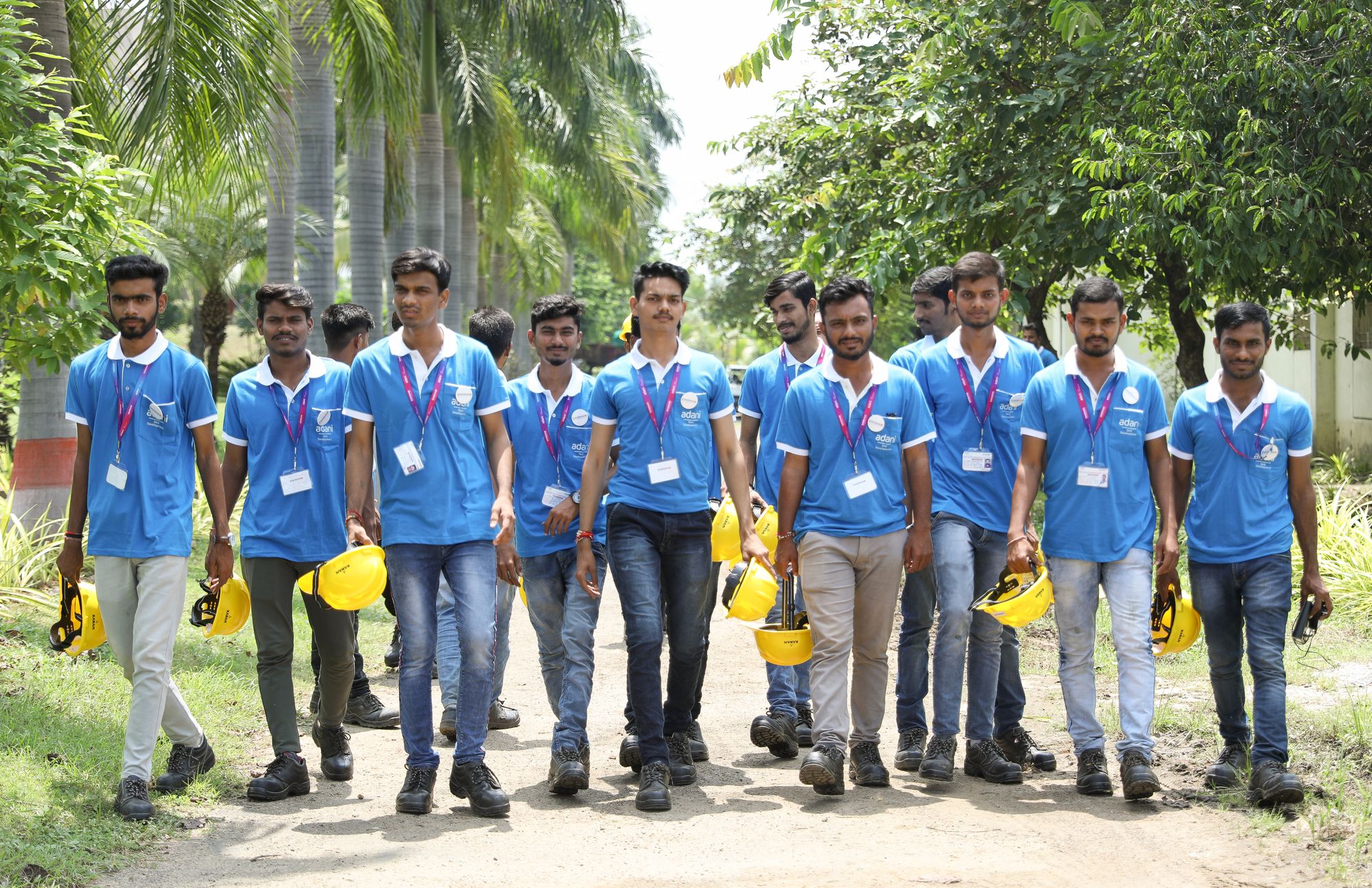
Saksham Hits a New Milestone
Saksham contributes towards nation building by imparting skill-based training and thereby, increasing employability of India’s youth. Through its Adani Skill Development Centres (ASDCs) pan India, the project works in line with the Government’s Skill India Mission. Recently, Saksham crossed a coveted milestone of training 1,00,000+ youth
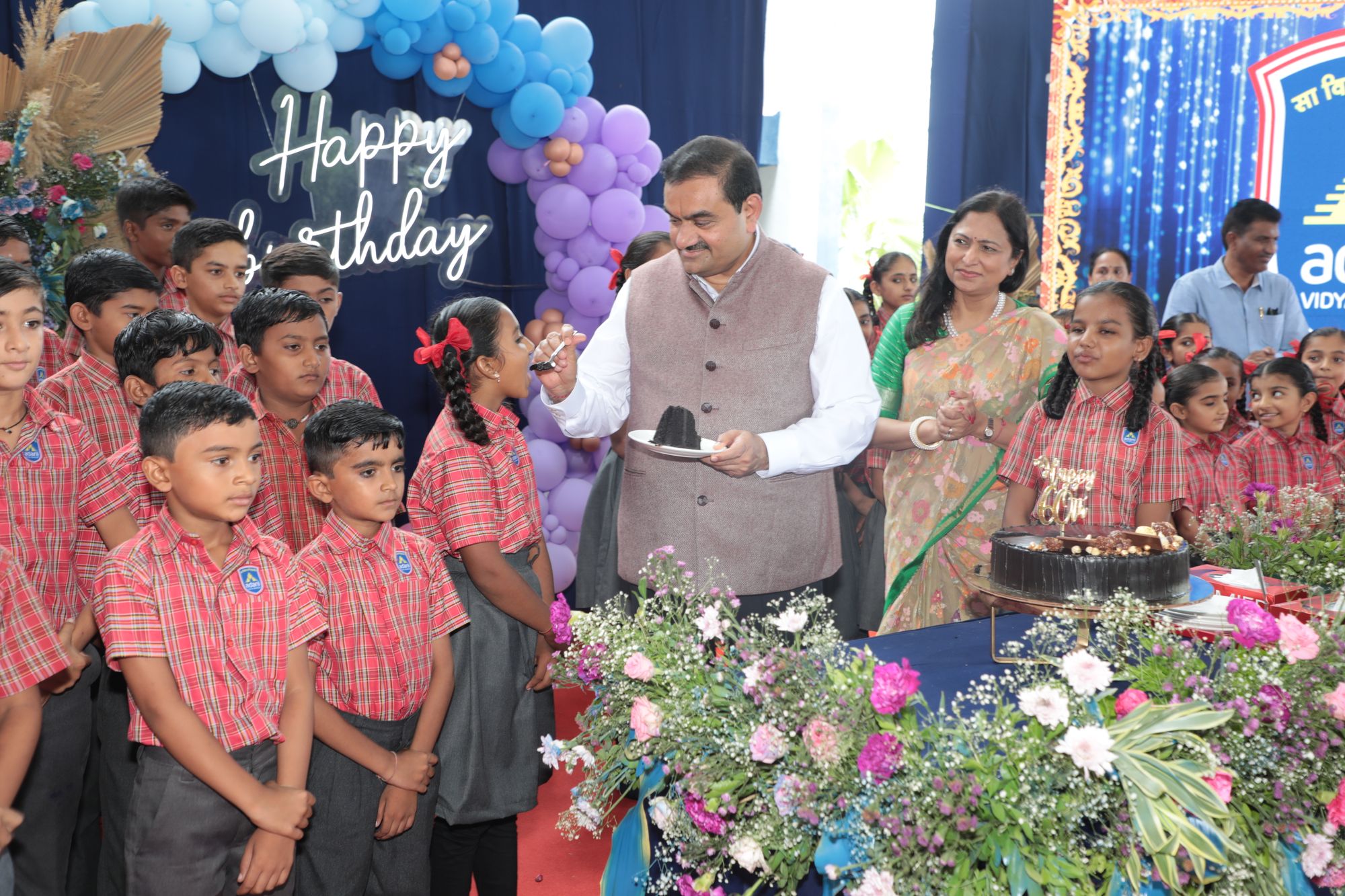
Picture Gallery - Highlights of 2022 April - June
In a run up to the celebrations for chairman Shri. Gautam Adani's 60th birthday, stakeholders of Adani Foundation run projects from across Mundra met the Chairman (many for the first time!) and his family. Shri Rajesh Verma, Secretary, Ministry of Corporate Affairs and Shri Praveen Kumar, Director General and CEO,

Two Adani Vidya Mandir Schools Receive Recognition
Education Today, one of leading Indian magazine, has awarded Adani Vidya Mandir, Ahmedabad (AVMA) a Special Jury Award for "Outstanding Contribution in the field of Education. AVMA has been providing cost-free education to meritorious students from the underserved sections of Ahmedabad since its establishment in 2008. It is a CBSE
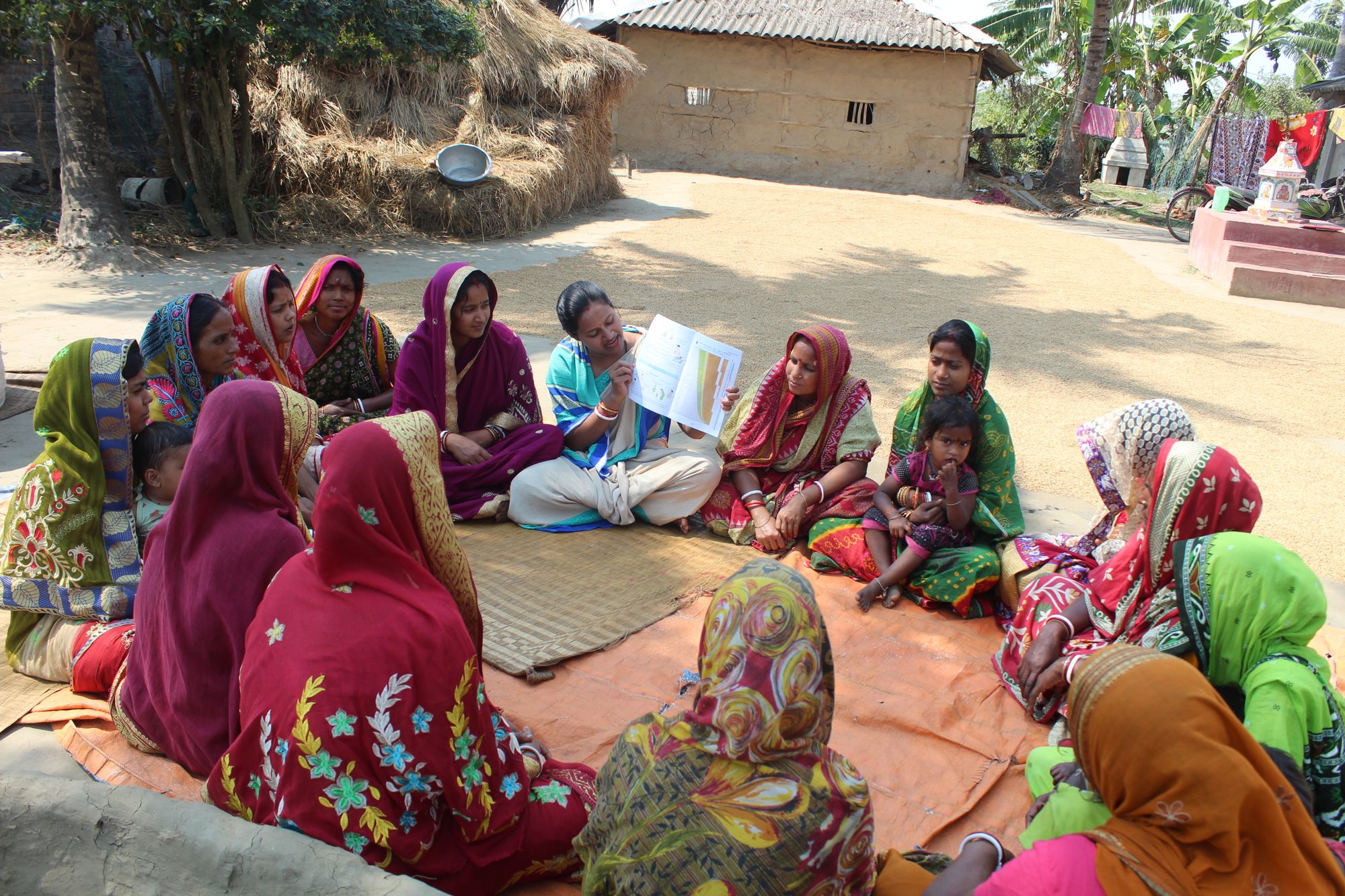
SuPoshan Sangini – The Empowered as an Empowerer
28-year-old Suchitra Majhi from Dhanakuta village in Karanjmal, Bhadrak district, Odisha has been a SuPoshan Sangini for three years. Recently, her family had to bear many losses in their farming activities due to climatic disturbances. Feeding six people was very challenging and this led her to seek opportunities is agriculture
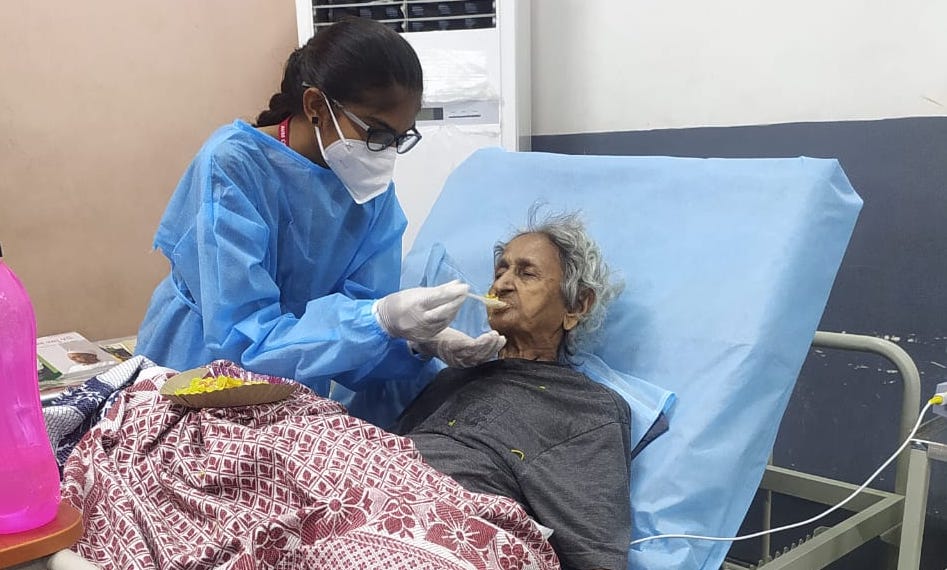
In Humanity’s Service while Achieving Self-Reliance
28-year-old Bhumi Desai is the youngest of three daughters of Vaghji Desai, an auto rickshaw driver. He is the only breadwinner in the family – he and his wife Janak wished that Bhumi joins the nursing line to earn a respectable job and income. Fortunately, during a hospital visit, they got
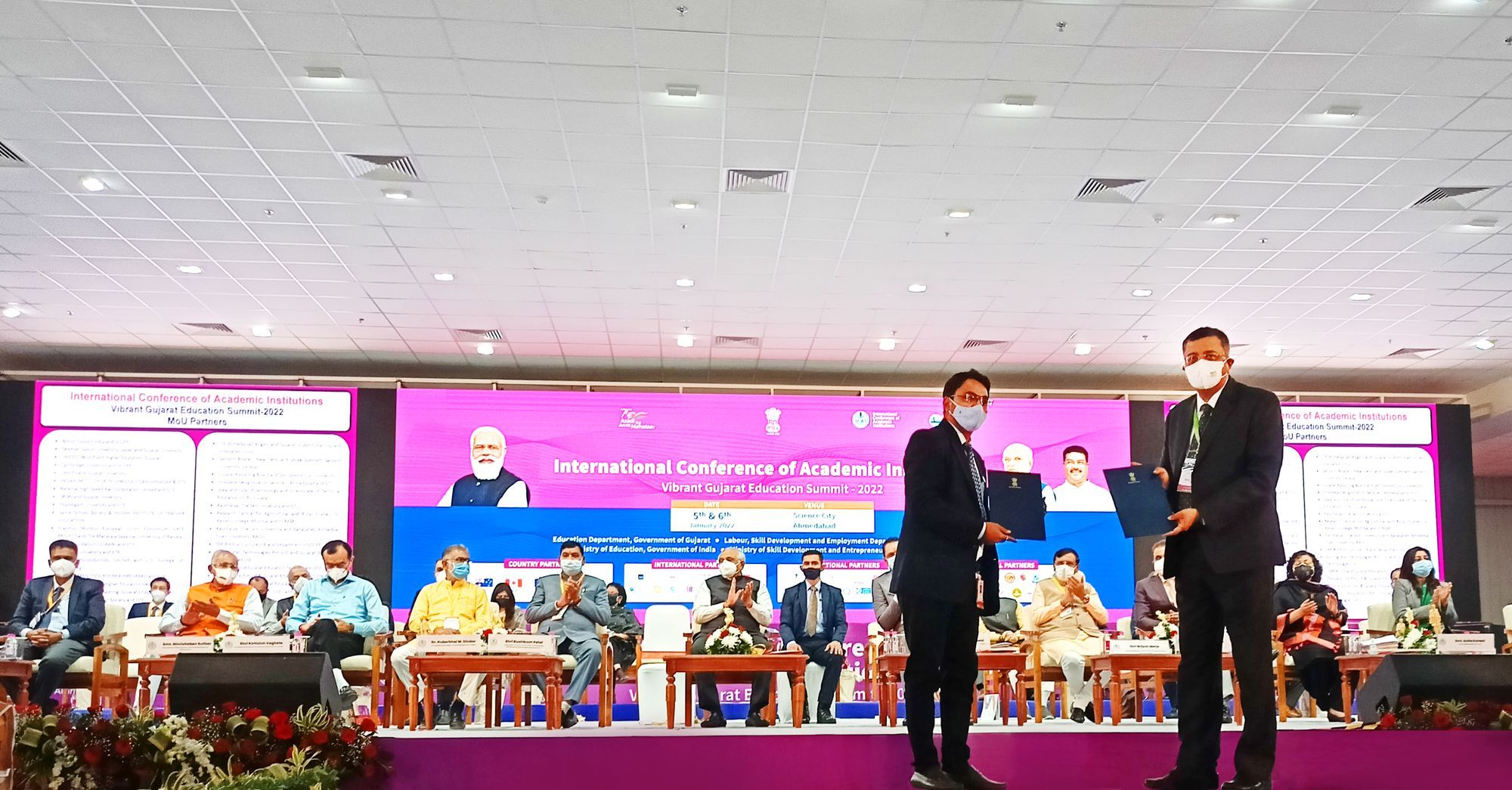
Picture Gallery - Highlights of 2022 January - March
An MoU has been signed with the Government of Gujarat for expansion of project Udaan so that more and more school & college students can explore the Adani Group facilities. It was a true women’s day celebration as Chairperson Dr. Priti Adani was in conversation with impact makers. Under
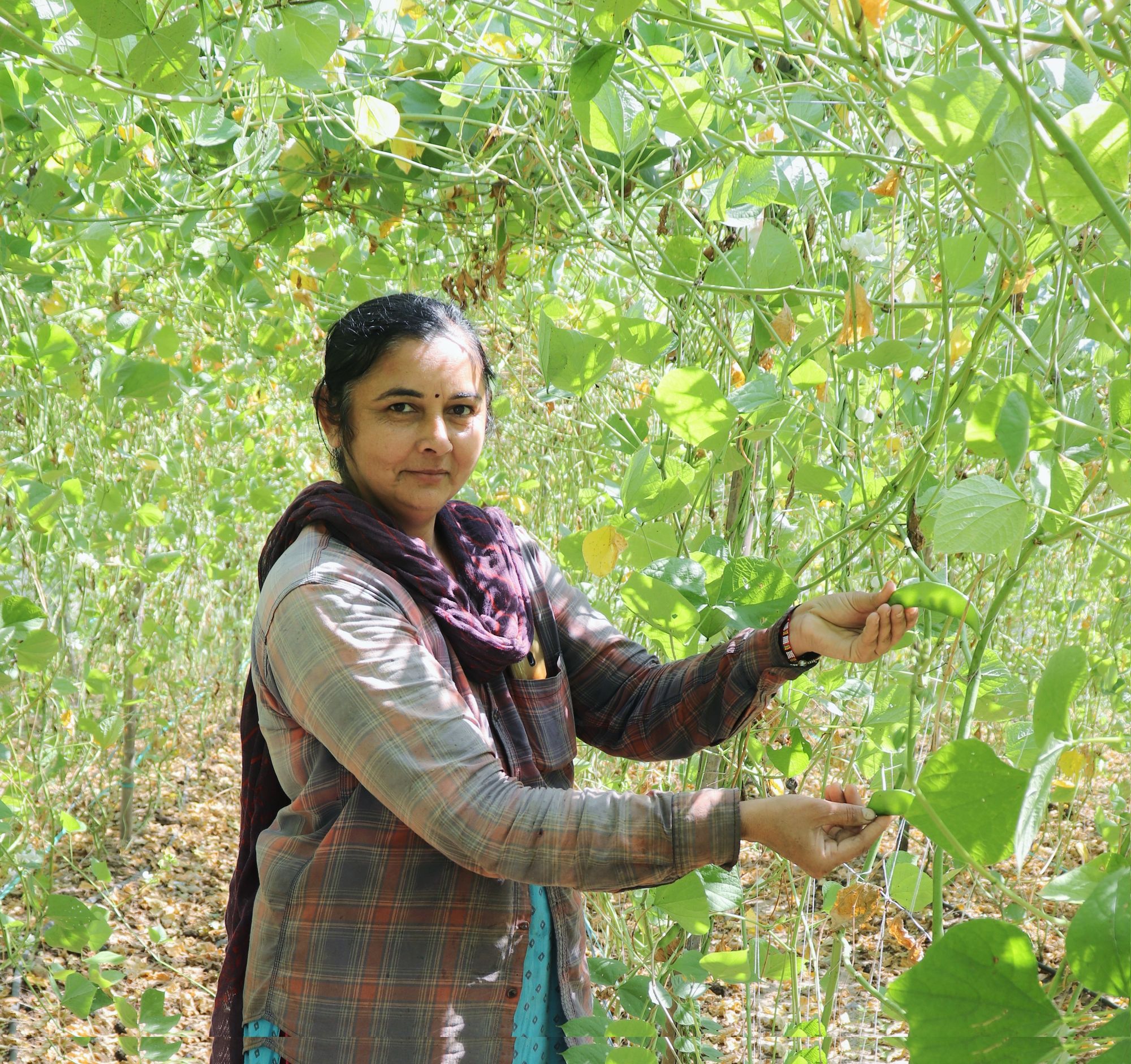
How Jyoti transformed the fortunes of her farm
When Jyoti Tank steps out of her tractor and walks through her farm in Mundra’s Mangra village, she beams with pride as she shows off a healthy, organic crop of varied gourd vegetables. Diminutive and slight, Jyotiben makes an unlikely farmer. Farming, she admits, was never in her plans.
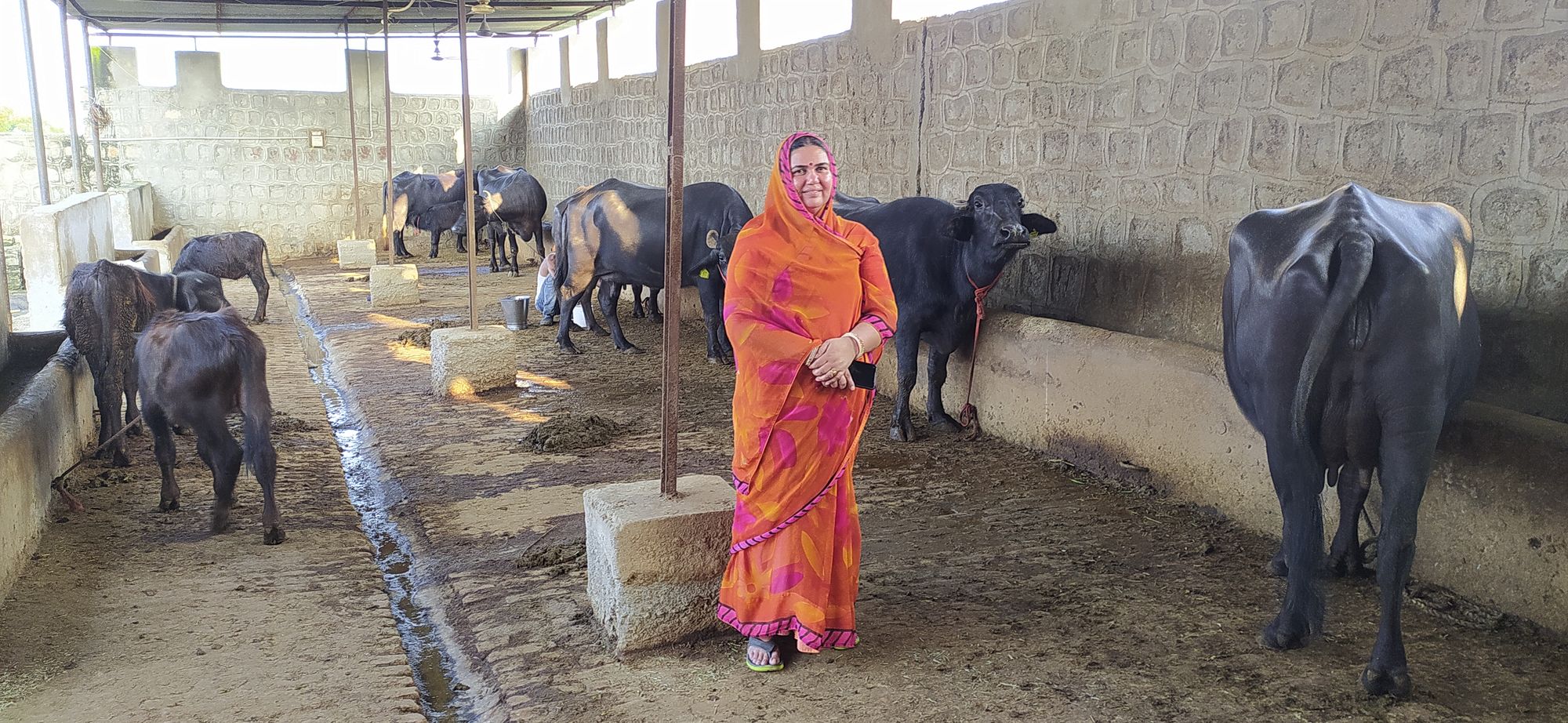
Sarla: From a cattle girl to a businesswoman
Sarla Choudhary grew up in Nimoda, in Rajasthan’s Kota district, surrounded by cattle which her father reared. Over the years, she got to learn a lot about the animals. “Even when I got married, my father gave me a pair of cows and buffaloes as a gift,” she says.
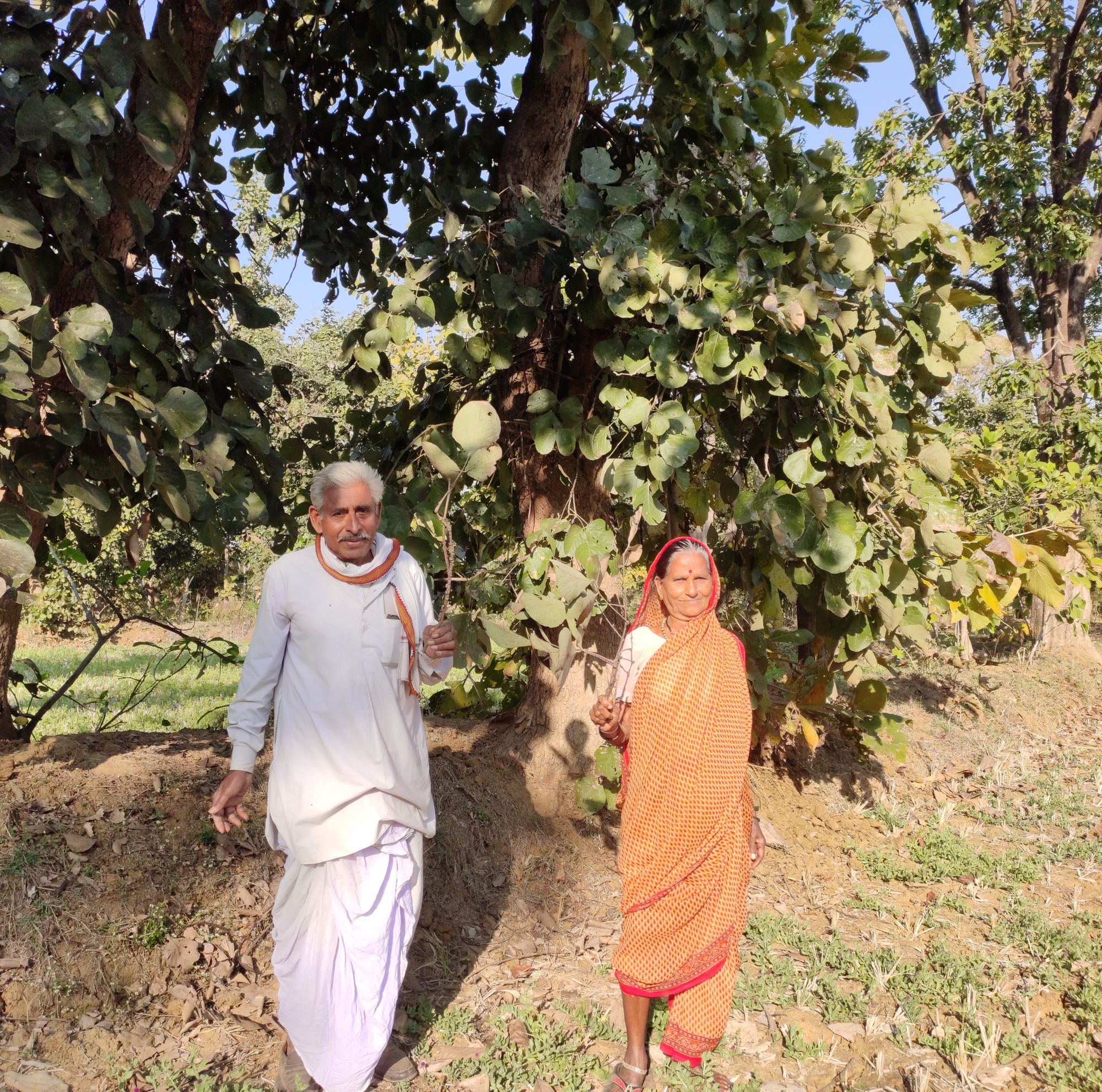
Surajlal: Lac cultivation to livelihood
Surajlal Chandu Thakare is a 70-year-old farmer from village Chikhali, block Tirora, District Gondia, Maharashtra. Over the years, his wisdom in the area of agriculture has only grown. His 4-acre of agricultural land cultivates paddy, coarse cereals, etc. and is surrounded with 40 Palas (Butea Monosperma) trees. He did nurture

Picture Gallery - Highlights of 2021 October - December
Poshan Vatika plantation at the household level for children with SAM, pregnant women, lactating mothers and adolescent girls Yoga session for adolescent girls Recipe demonstration with locally and easily accessible ingredients, local greens and millets Family counselling for sensitizing family members on various topics such as pregnancy and breastfeeding Counselling




































































































